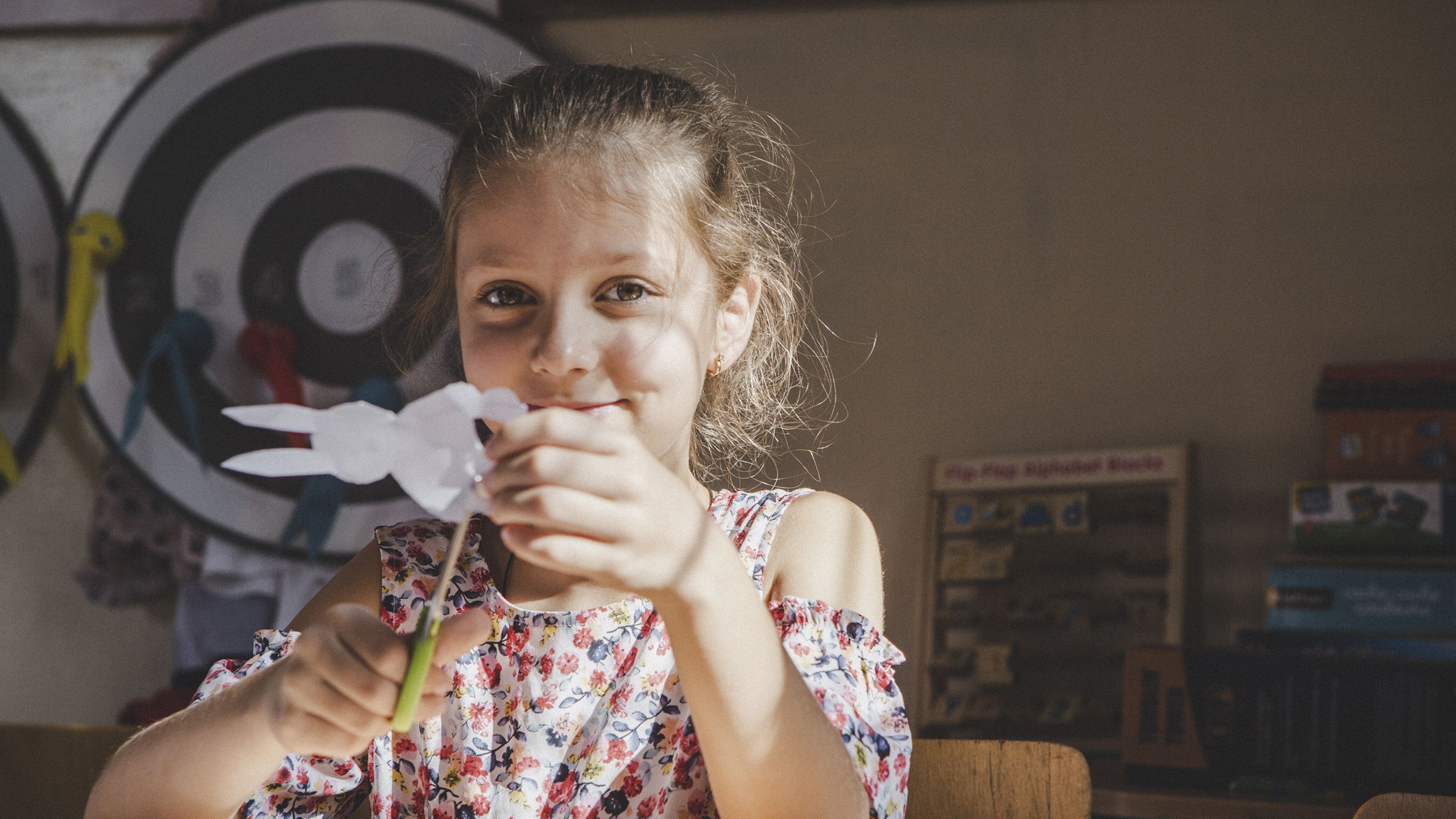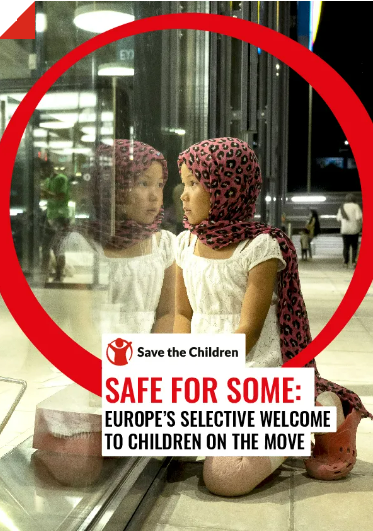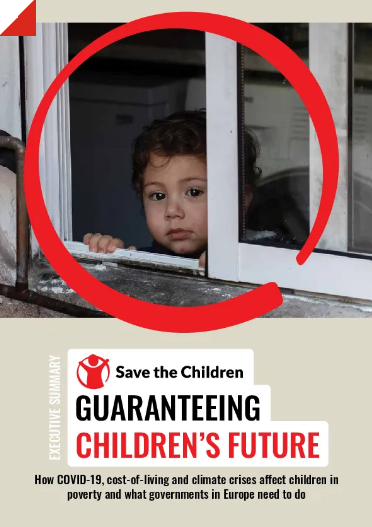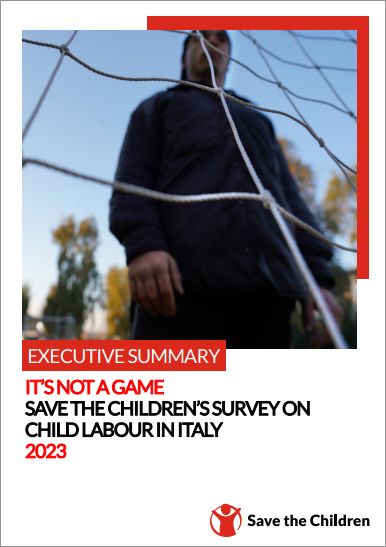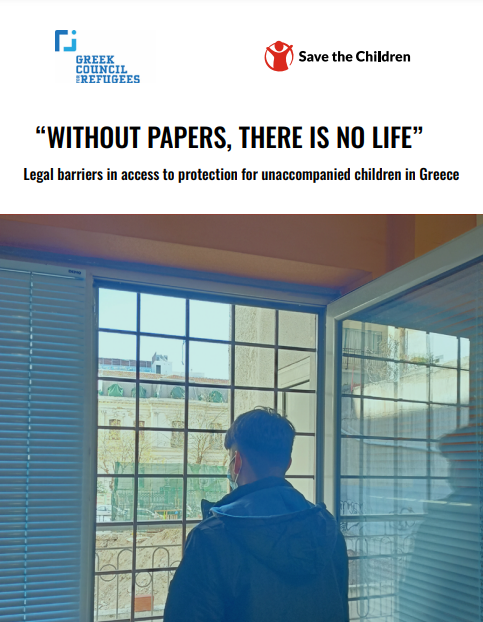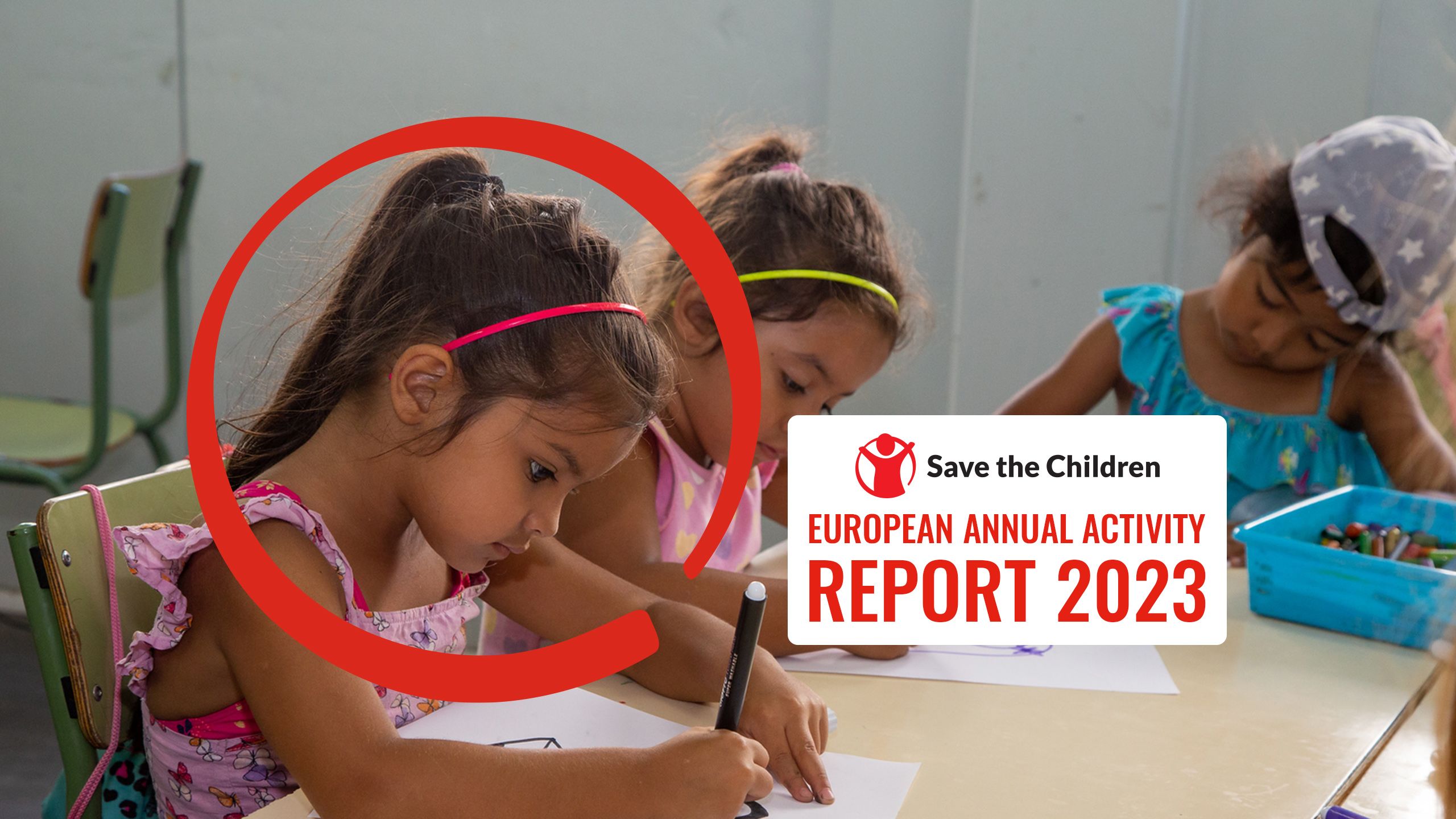
Welcome
Save the Children has a long history in Europe. More than 100 years ago, our founder Eglantyne Jebb fought to protect children in the aftermath of World War I. It is during the last few years, however, that Save the Children has significantly increased its work in Europe as a convergence of crisis threatens children's rights and lives across the continent. Though Europe is one of the wealthiest regions in the world, children are still being failed by its social and protection systems.
Childhoods are being stolen away amid crisis and conflict. 1 in 4 children across the European Union (EU) grow up at risk of poverty or social exclusion. An unknown number of children die every week trying to enter Europe as they flee the hardships of war, climate change, dictatorships and more. If they make it, many are then detained or held in prison-like camps.
1 in 5 children are sexually abused in Europe while the climate crisis impacts most heavily children in vulnerable situations. 1 in 5 children in Ukraine are either displaced or have recently returned home, but are being pushed to the brink, grappling with threats to their health, safety and livelihoods.
Despite this looming context, there are significant opportunities at EU and national level to protect children's rights through legislation and policies. The coordinated efforts of Save the Children members and offices across the continent are crucial.
In 2023, for the first time, we have brought together information in an Activity Report from our work across Europe, from 16 of the 21 Save the Children Members and Offices in Europe, as well as Brussels-based Save the Children Europe.
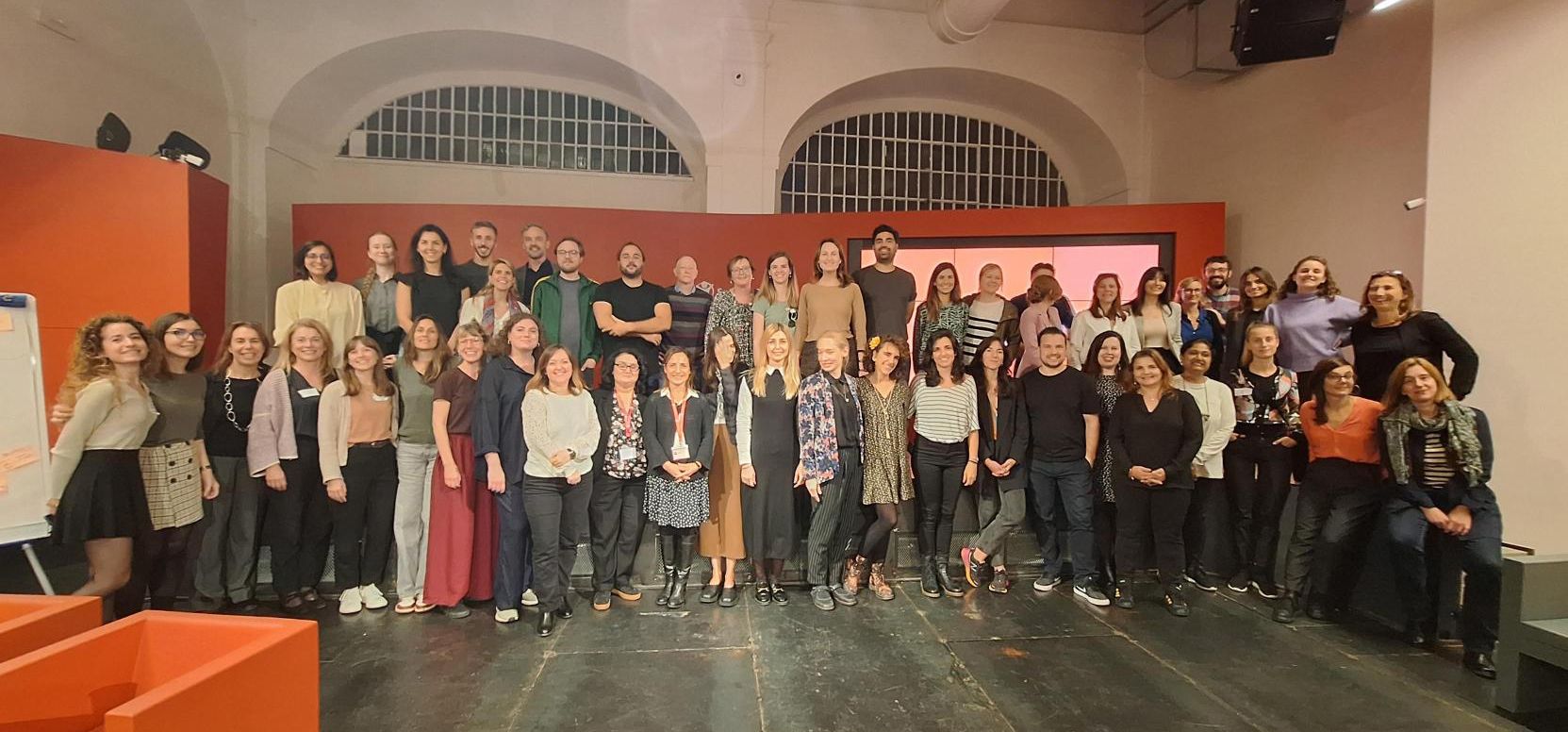
Photo: Save the Children Europe
Photo: Save the Children Europe
This report is intended to shed light on how our programmatic work and advocacy efforts across Europe help children and families.
Save the Children functions with the support of individual and corporate donations, foundations, as well as institutional funding coming from governments and EU funding opportunities. Our members and offices are in 21 countries across Europe*: Albania, Bosnia and Herzegovina, Denmark, Finland, Georgia, Germany, Iceland, Italy, Kosovo, Lithuania, Montenegro, Norway, Poland, Romania, Serbia, Spain, Sweden, The Netherlands, Ukraine, UK and Switzerland. In Brussels, a team of 20 colleagues work to make sure EU decision-making puts children first, and that funding supports children most in need.
*not all are members of the EU
As the world’s leading child rights organisation, Save the Children is determined to make this world a better one for children with children.
Our aim is that children co-lead our work, empowered with the knowledge they need to have their views heard.
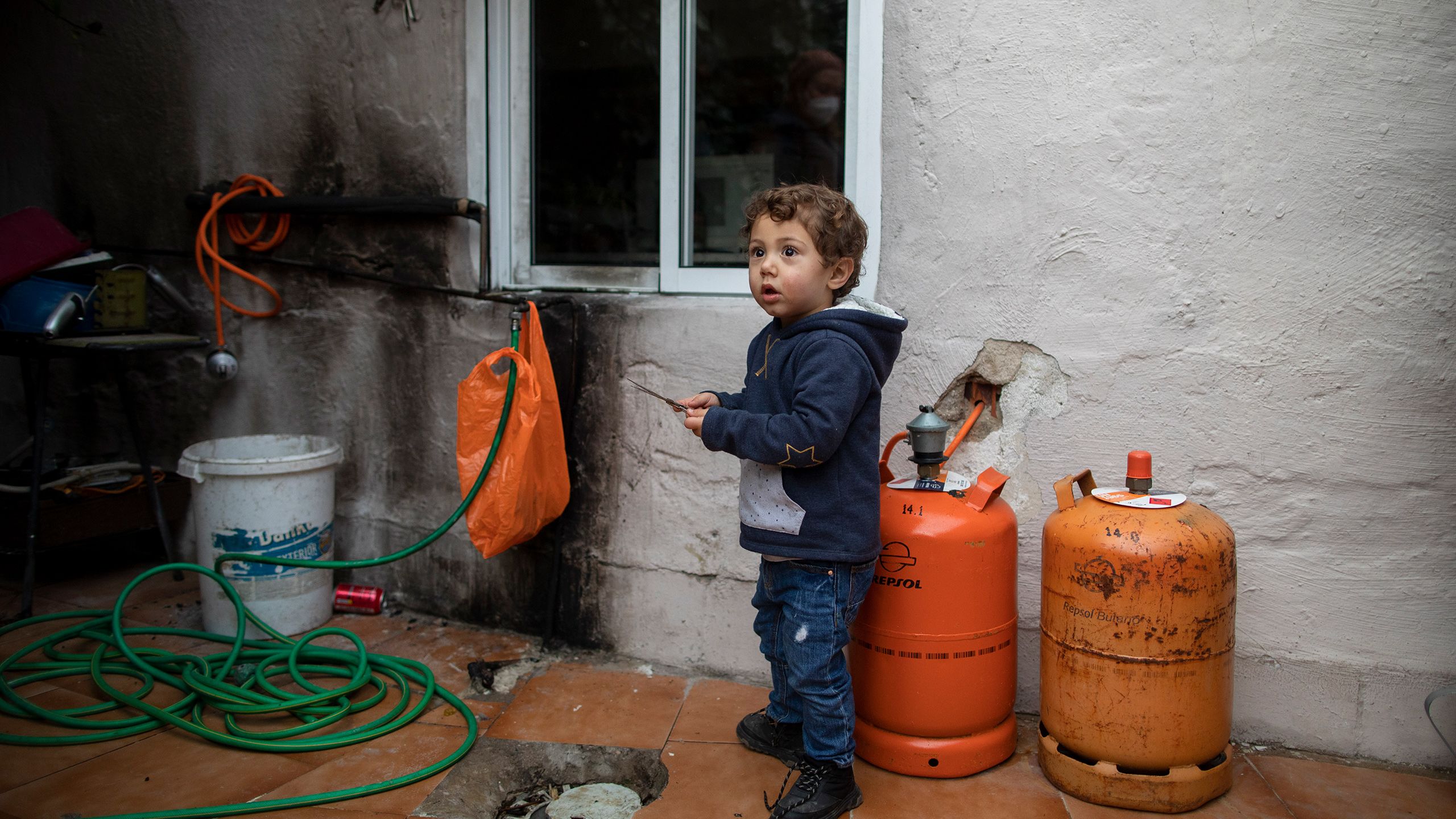
A better life for children in Europe
In 2023, Save the Children has invested an overall budget of approximately €230 million to implement more than 250 projects to save and improve the lives of more than 1.5 million children across Europe.
These projects are dedicated to strengthening child protection, combating child poverty and social exclusion, supporting children on the move, helping children into education, strengthening children’s rights and child participation, fostering mental health through psychosocial support, as well as working on digital issues, climate and gender equality. The chart below indicates the number of projects under each thematic area.*
* Projects implemented by Save the Children Norway and Save the Children Ukraine are not captured in the charts below.
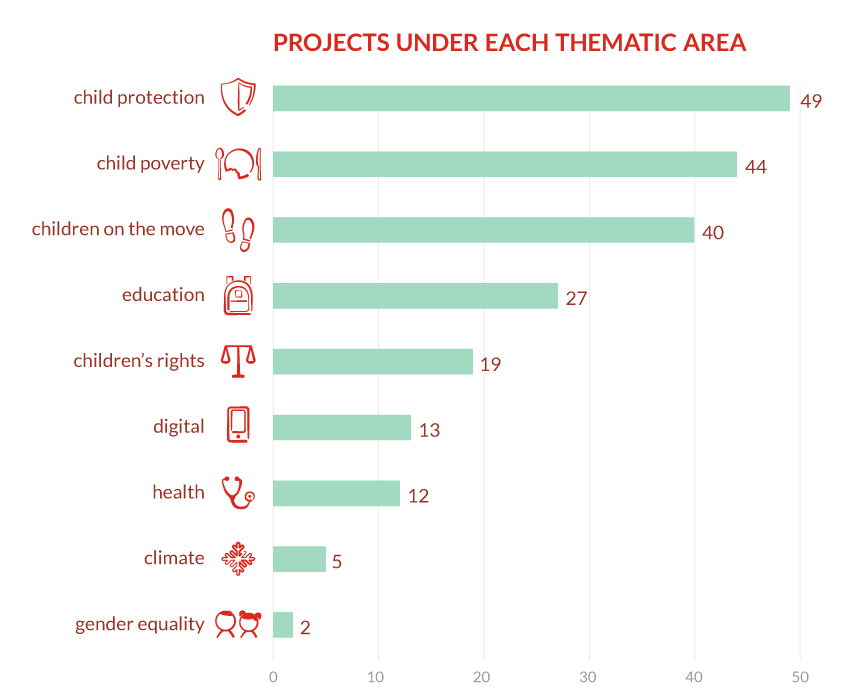
Approximately 70% of projects are implemented at a national level, while approximately 8% are implemented at a transnational level.
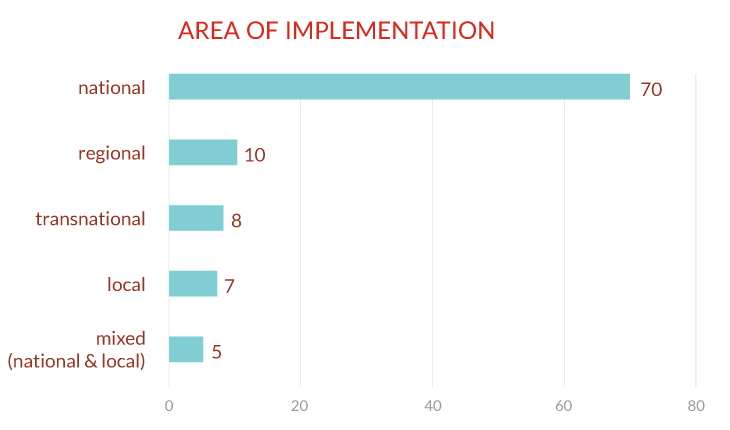
The projects support children, caregivers, adults, professionals or a mix of those groups. Mixed target groups can include a combination of any two or more of those categories. Approximately 68% of the projects support a mixed group, while 23% are dedicated to children only.
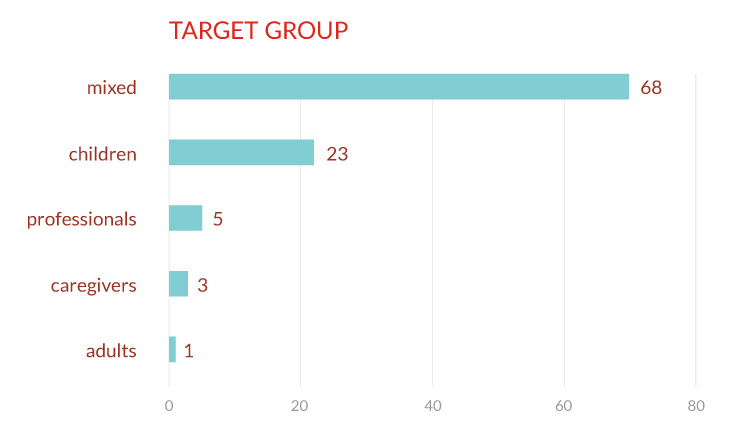
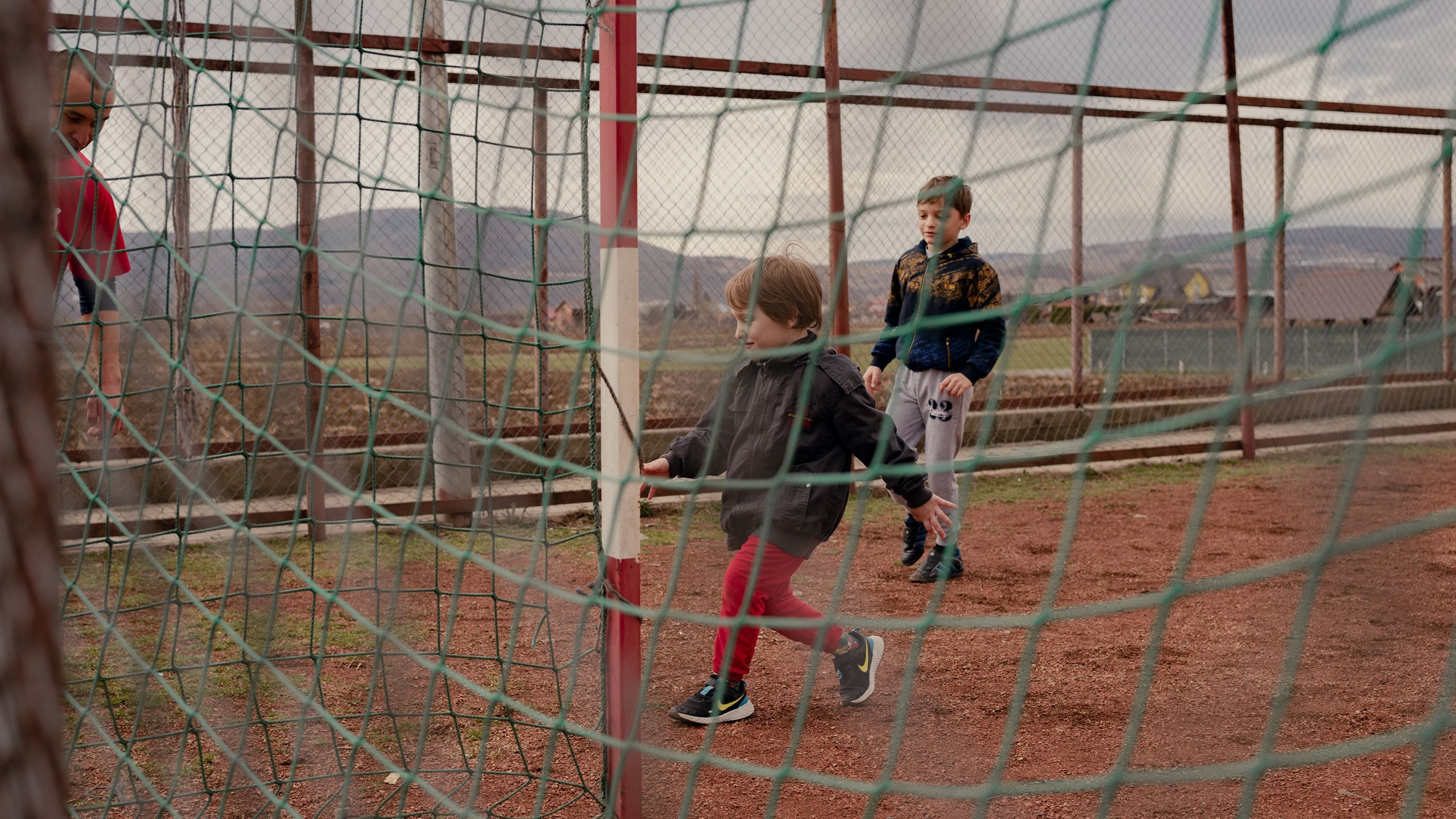
Funding
The European Union is one of our biggest institutional donors, supporting our programmes across all European countries where we work.
In 2022, we received €14.5 million in EU funds in support to our European programmes. In 2023, we collectively submitted 34 project proposals for EU funds, all tackling the issues explored in the ‘what we work to change’ section: the protection of children from online and offline violence; the mental and psycho-social support of all children; the protection and the integration of children on the move, unaccompanied and separated or with their families; the fight against child poverty and the promotion of social inclusion of children in vulnerable situations; child participation and children’s rights; and the challenge of climate change.
From EU Funding Programmes managed by the European Commission and its Agencies, major sources for our work with children in Europe are the Citizens, Equality, Rights and Values (CERV) Programme and the Asylum, Migration and Integration Fund (AMIF). Also key are Horizon Europe and Erasmus +. The Digital Europe Programme funds our participation in the Safer Internet Centres. Our work is also supported by other EU Funding Programmes, also managed DG NEAR, INTPA and ECHO.
In EU countries, we rely on the European Social Fund + and the nationally-managed AMIF, which are the main funders of our work with children at risk of poverty and of social inclusion, and children on the move.
We employ all EU funds with the spirit in which they are granted: efficiently and inclusively, to make meaningful, ethical, sustainable change for the benefit of children, in line with their rights and all human rights. They allow us to work on new programmes and innovative methodologies, improve existing ones and upscale what is demonstrated to work to the benefit of children, with a meaningful, inclusive and ethical child participation always at its heart.
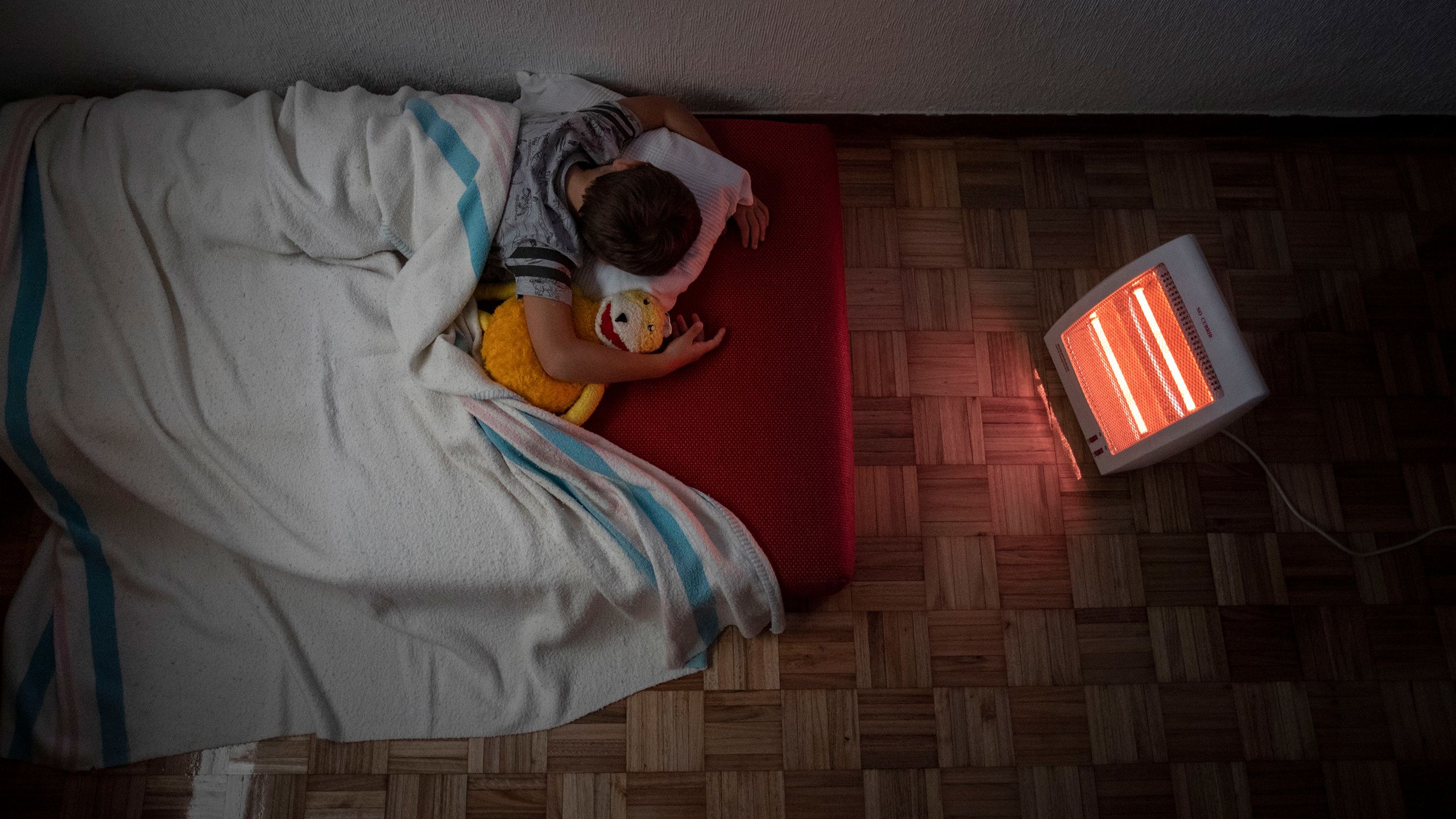
Where we work

Denmark
Save the Children Denmark
https://redbarnet.dk/
Finland
Save the Children Finland
https://www.pelastakaalapset.fi/
Germany
Save the Children Germany
https://www.savethechildren.de/
Iceland
Save the Children Iceland
https://www.barnaheill.is/
Italy
Save the Children Italy
https://www.savethechildren.it/
Lithuania
Save the Children Lithuania
https://gelbekitvaikus.lt/
Norway
Save the Children Norway
https://www.reddbarna.no/
Romania
Save the Children Romania
https://www.salvaticopiii.ro/
Spain
Save the Children Spain
https://www.savethechildren.es/
Sweden
Save the Children Sweden
https://www.raddabarnen.se/
Switzerland
Save the Children Switzerland
https://savethechildren.ch/en/
The Netherlands
Save the Children Netherlands
https://www.savethechildren.nl/
United Kingdom
Save the Children United Kingdom
https://www.savethechildren.org.uk/

Albania
Save the Children in Albania National Office
https://albania.savethechildren.net/
Kosovo
Save the Children in Kosovo National Office
https://kosovo.savethechildren.net/

Georgia
Save the Children Country Office
https://georgia.savethechildren.net/
North-West Balkans
Save the Children in NW Balkans Country Office
https://nwb.savethechildren.net/
Ukraine
Save the Children in Ukraine Country Office
https://www.savethechildren.net/what-we-do/emergencies/ukraine

Poland
Save the Children Poland Regional Response Office
https://poland.savethechildren.net/

Brussels
Save the Children Europe
https://www.savethechildren.net/what-we-do/advocacy/save-children-europe
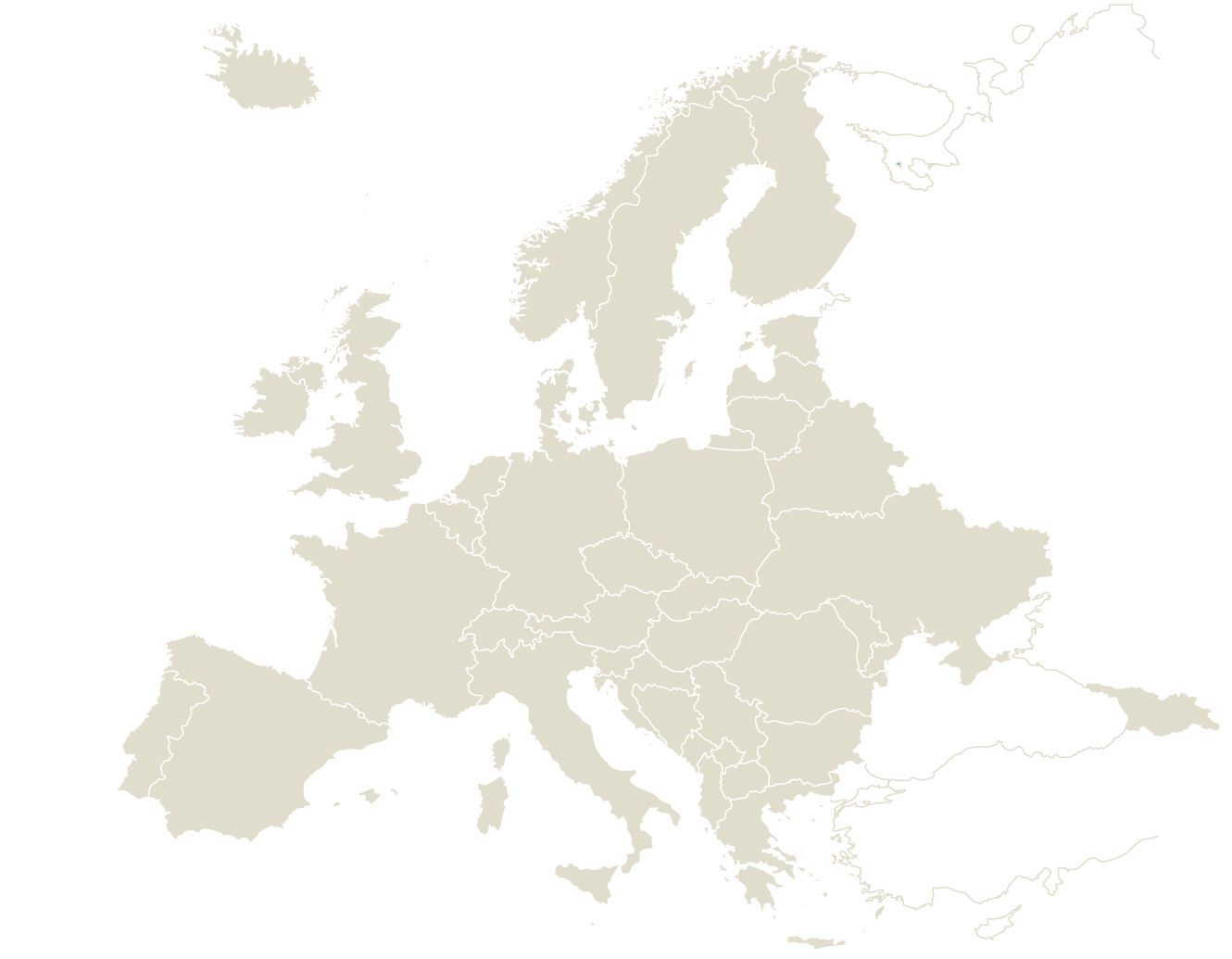
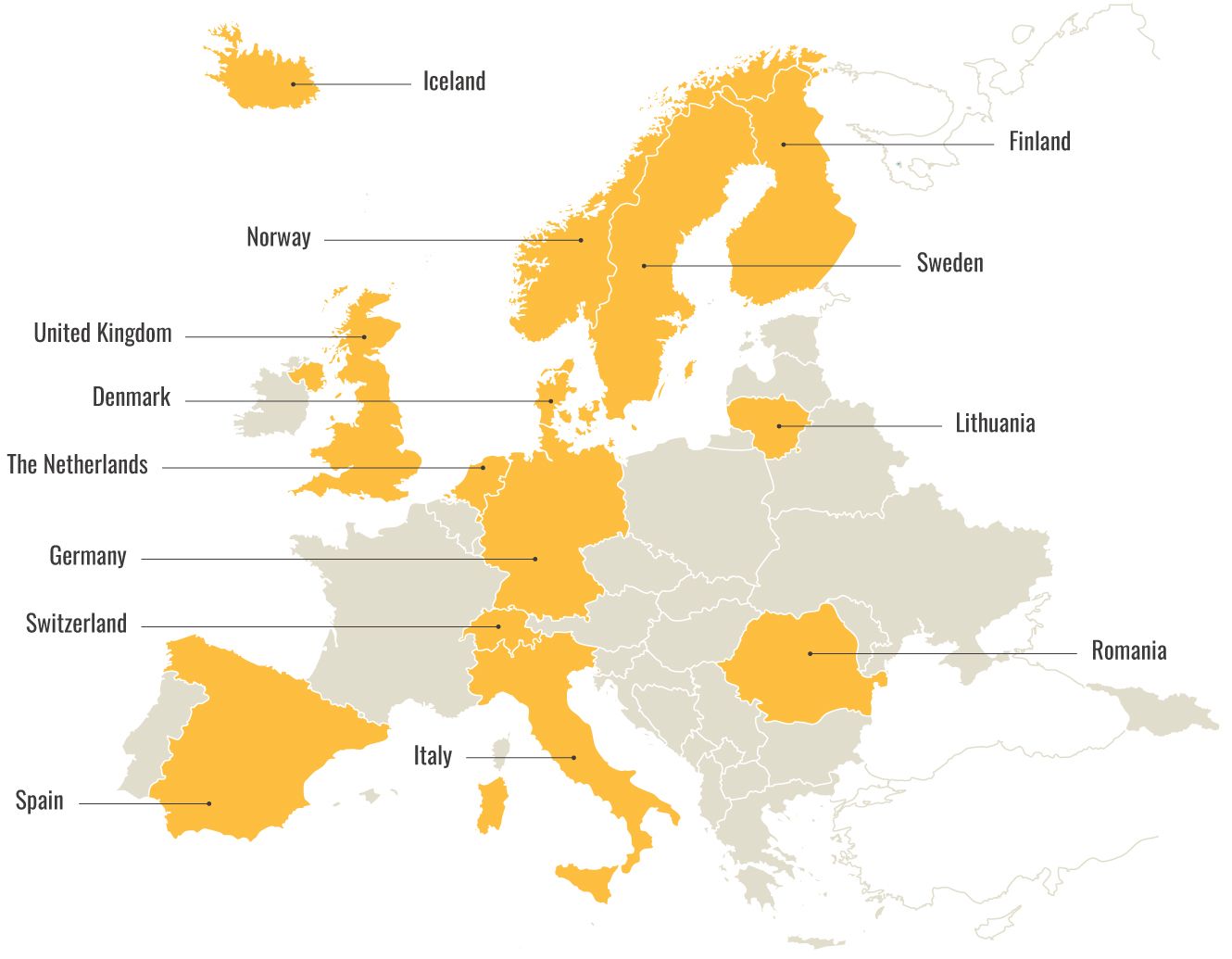
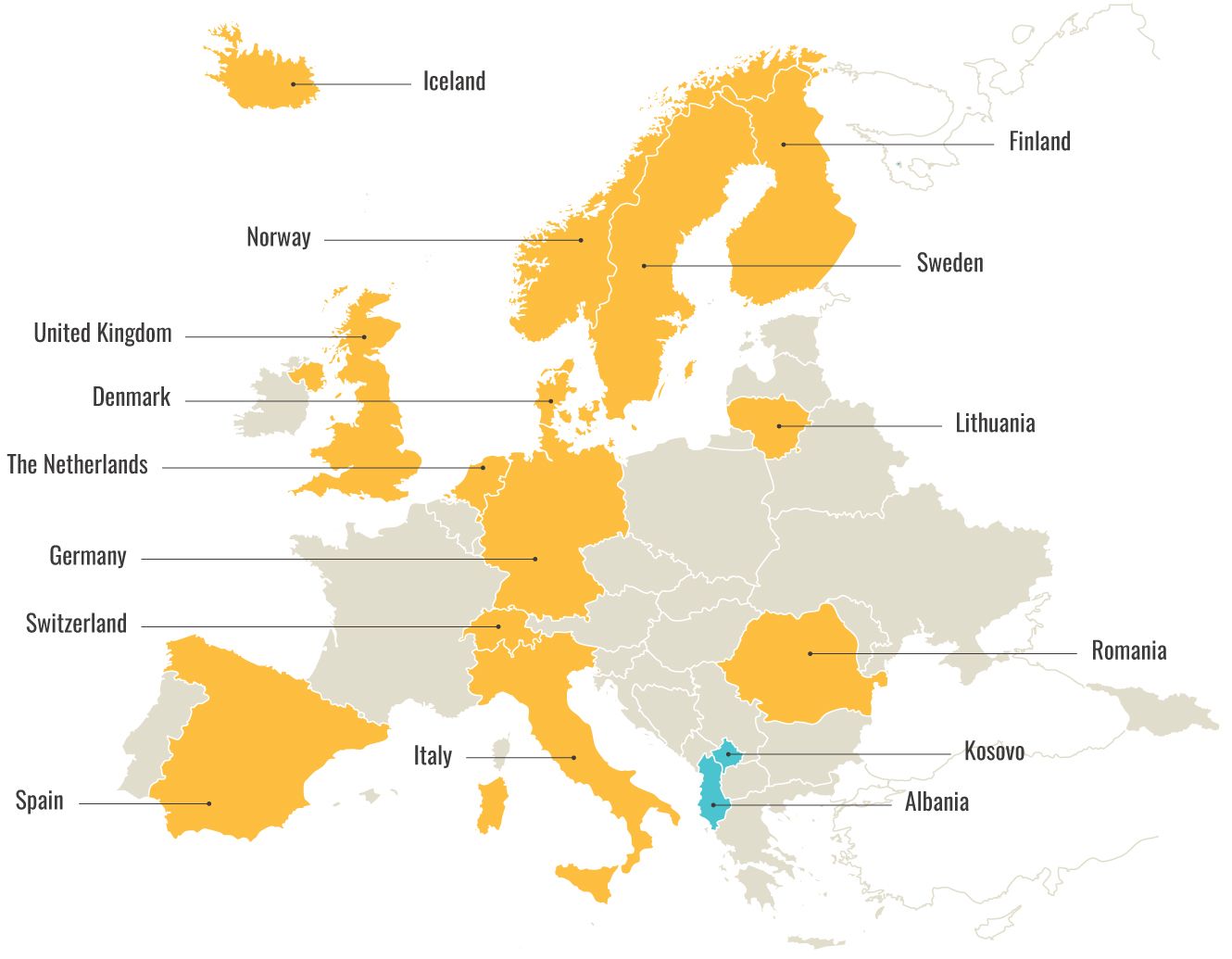
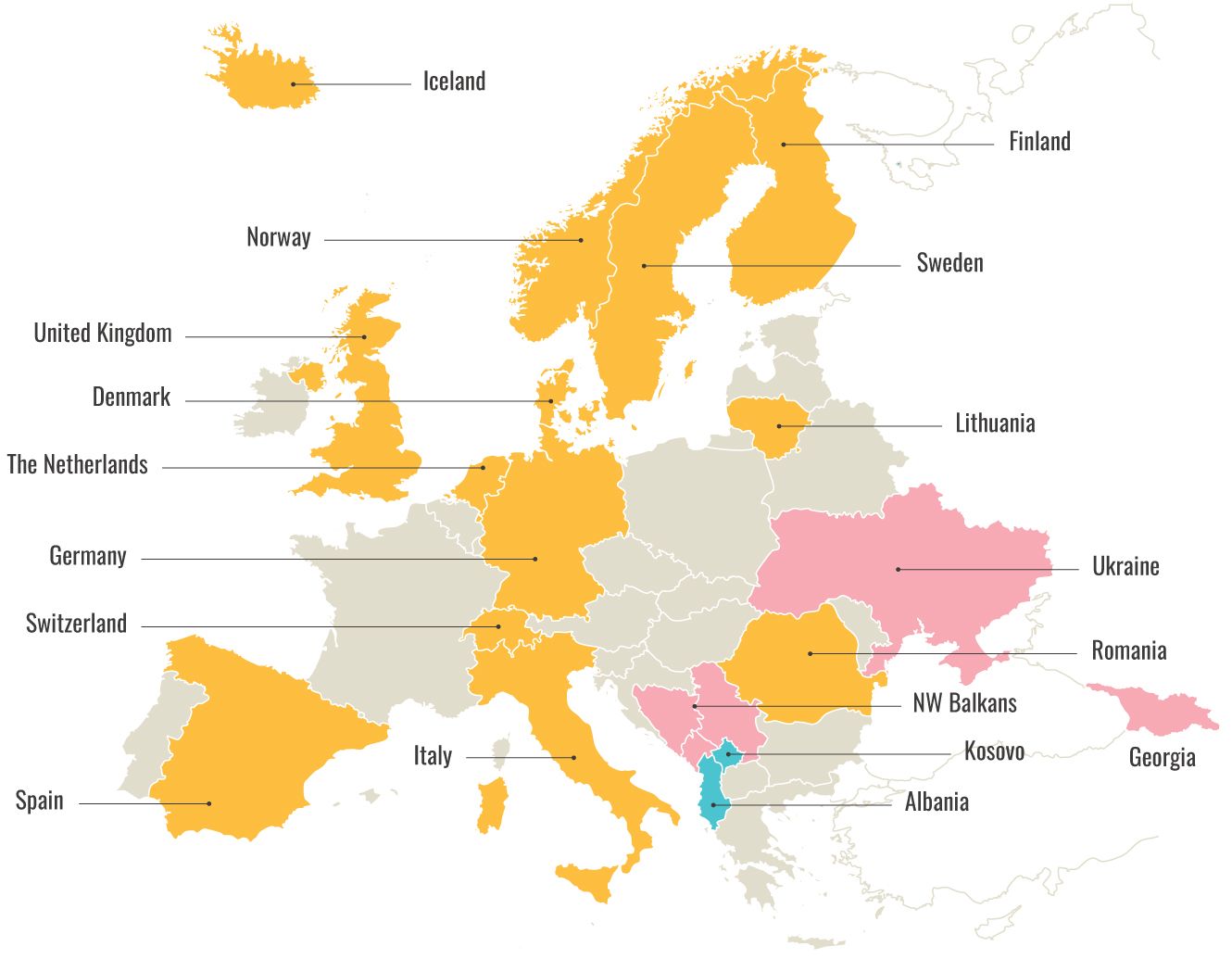
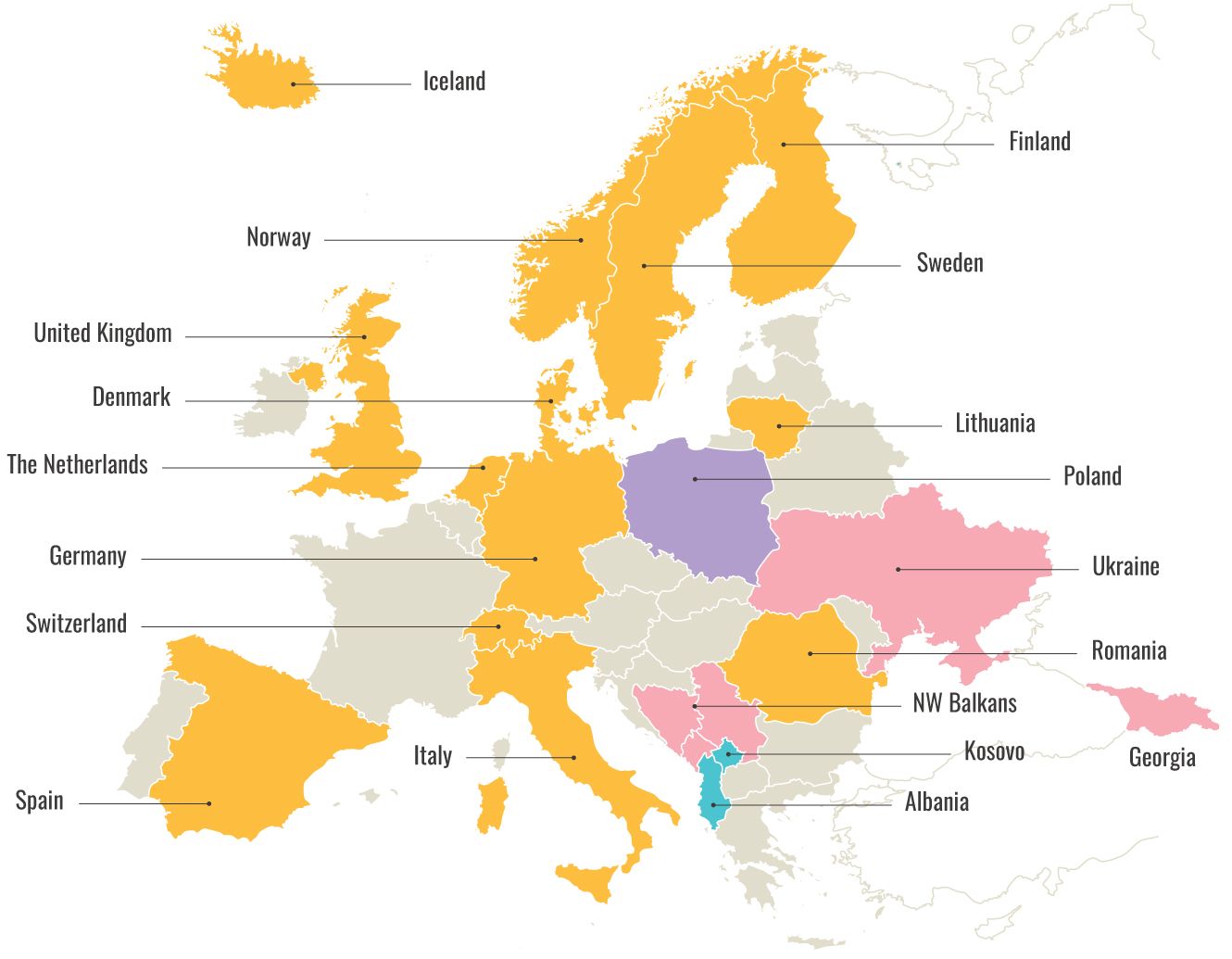
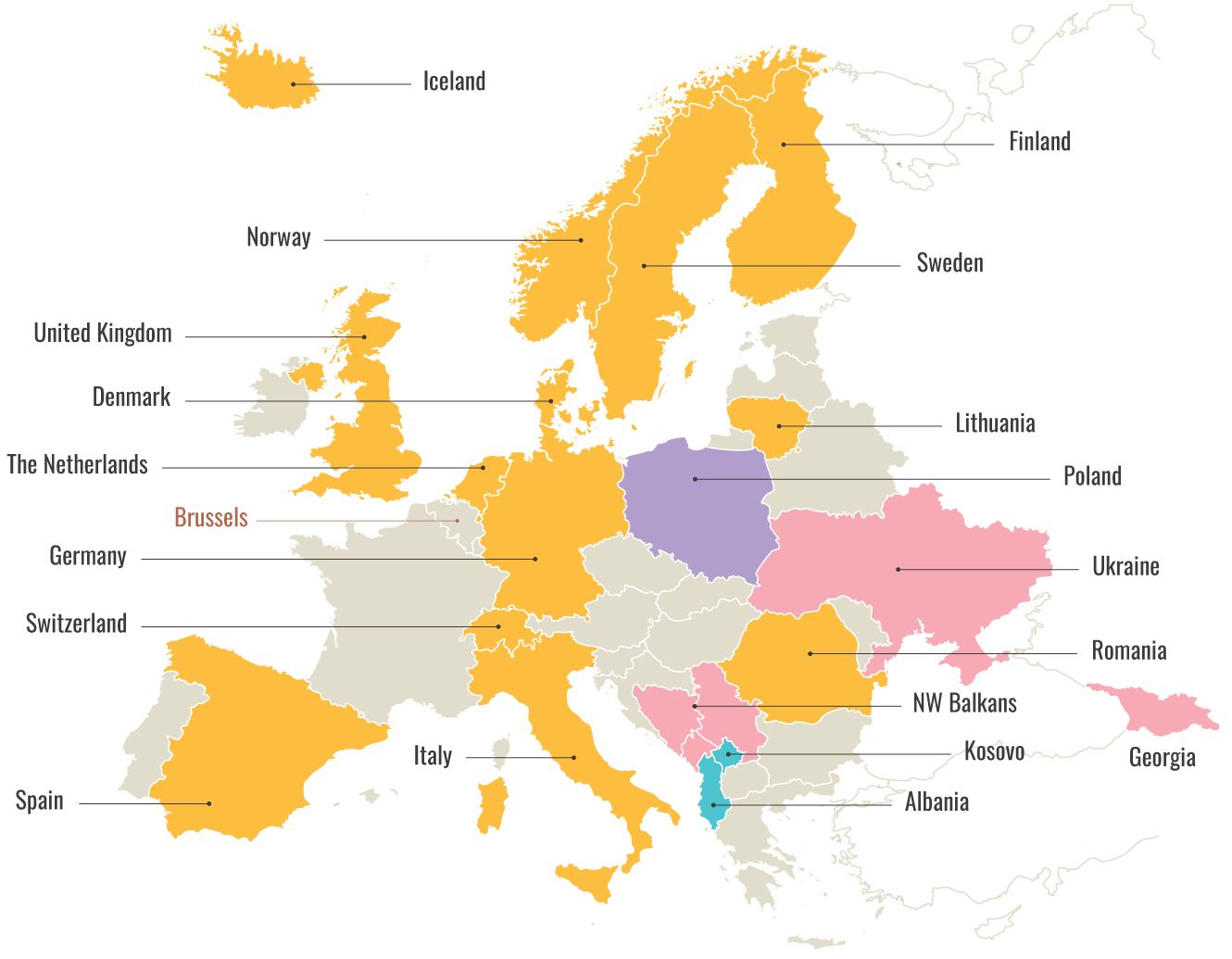
2023 DECISIVE MOMENTS

An ambitious Media Literacy Goals partnership project to support schoolchildren and young people navigate the internet safely and critically is launched by Save the Children Denmark.
The Healing and Education through the Arts (HEART) and TeamUp (movement and play) programmes by Save the Children Poland offer new training to build partner capacity in mental health and psychosocial support for Ukrainian refugee children.
An evidence-based sexual education training package for professionals working with children aged 5-11 is developed by 4 Save the Children organisations: Finland, Iceland, Albania, North-West Balkans, together with their Greek partner KMOP, as part of the Child Sexual Abuse Prevention 2022–2024 project.
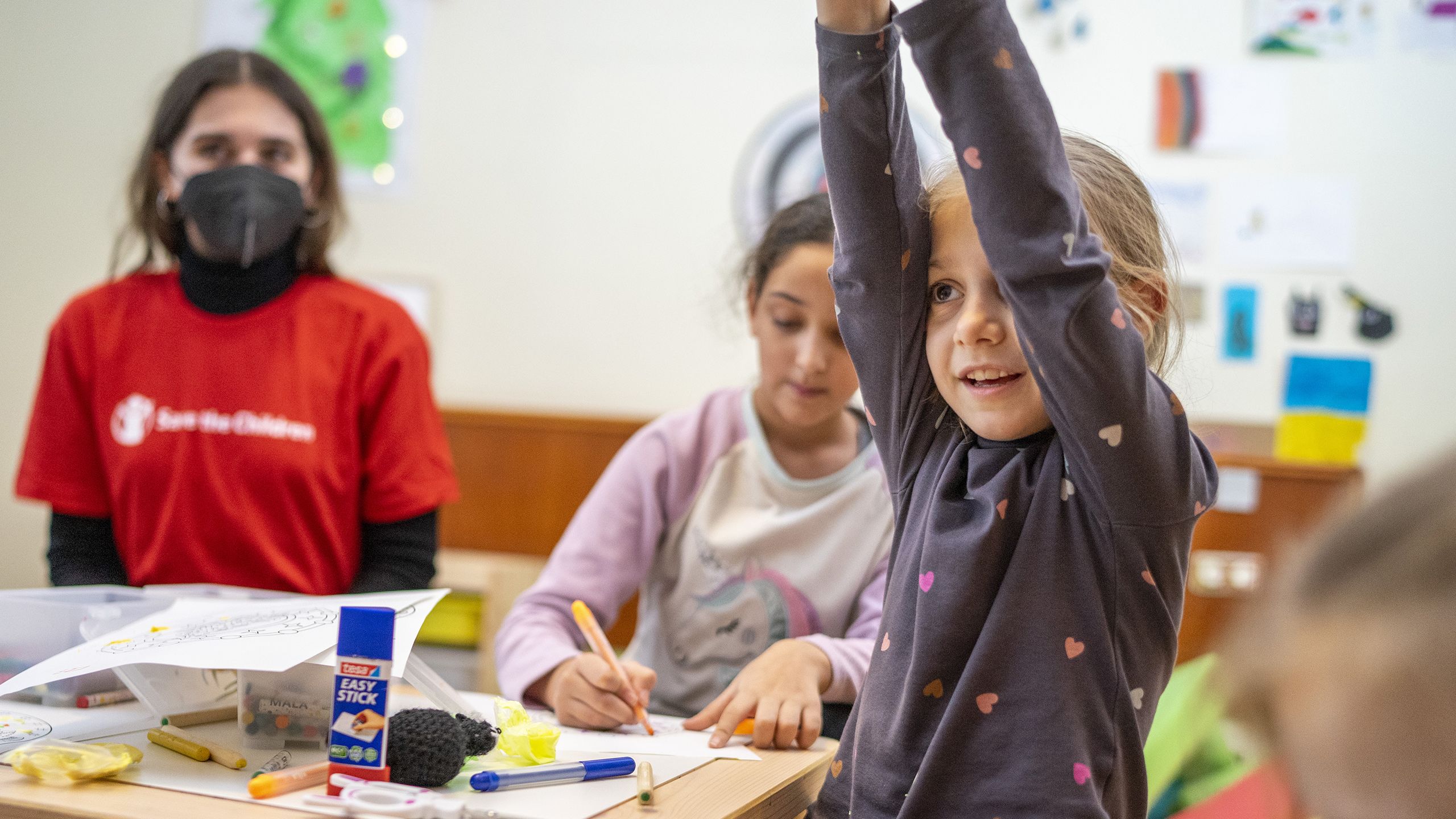

Save the Children Europe launches the Safe for Some report, exploring, through research with children across 13 countries, the effects of the EU and European states’ response to refugees fleeing the conflict in Ukraine. European governments and institutions have proved that – where there is will – they can adopt successful policies that support children.
Save the Children Netherlands adds a new layer to their TeamUp@school programme: a train-the-trainer trajectory that allows trained teachers to then pass knowledge and skills on, maintaining quality in current schools – and reaching new ones.
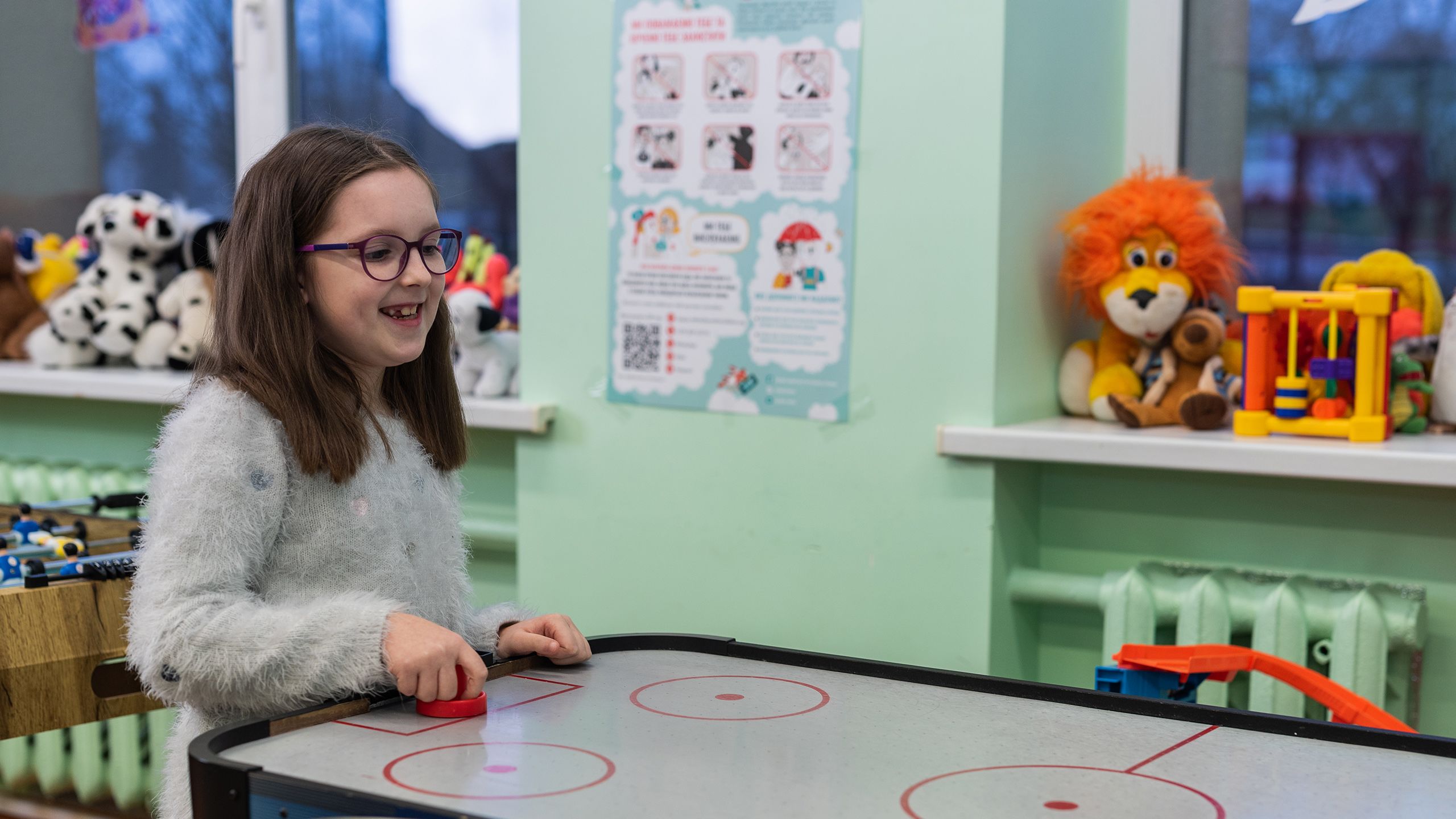

Save the Children Europe publishes its by-annual Child Poverty Report looking at current child poverty reduction policies and at how the European Child Guarantee is being implemented across the EU, in Albania, Bosnia and Herzegovina and Kosovo. It builds on input and insights from Save the Children teams across 14 European countries. It is launched during a high-level event at the European Parliament.
The Child Life Barometer, a survey and dialogue tool for middle school children created by Save the Children Denmark engages 1800 children in voicing their views on their well-being.
On their National Day for the Wellbeing of the Child, Save the Children Denmark get 53,000 students from 205 schools involved in ‘shining a light’ on wellbeing in classrooms.
Save the Children Spain launches the Healing and Education through the Arts (HEART) methodology with a project for children on the move funded in Catalonia and Melilla.
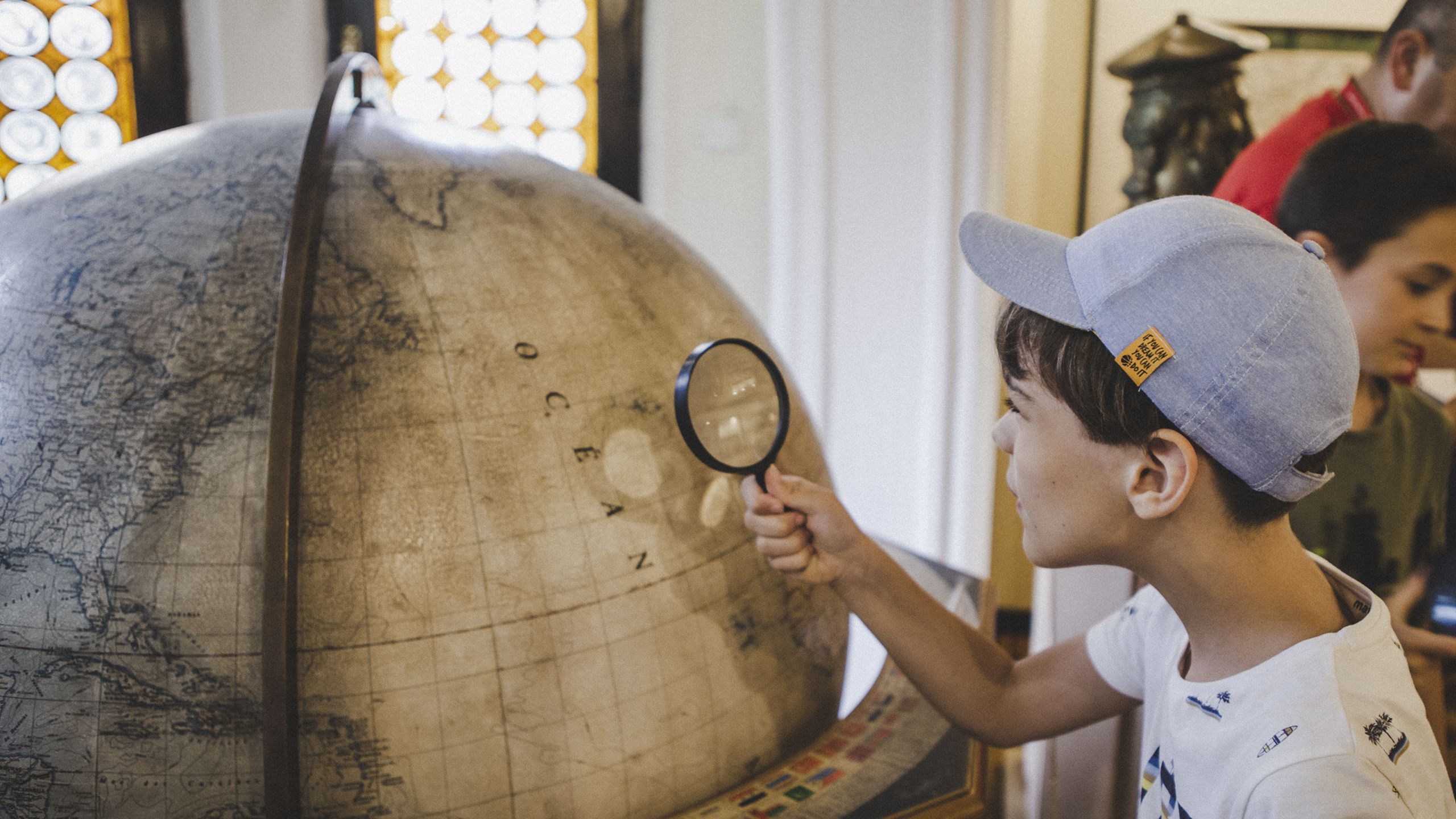

Save the Children Italy launches the It is Not a Game report, highlighting how the engagement of adolescents in work activities before the legal working age is widespread and threatens their education and personal growth.
116 teachers and school management staff from 41 schools across seven target areas receive training based on Save the Children Kosovo’s newly developed guidelines on best practice for inclusive education. Kosovo teams also conducted the first legislation analysis in the country this year, revealing the many barriers preventing young people with disabilities gaining vocational training and being able to transition into work.
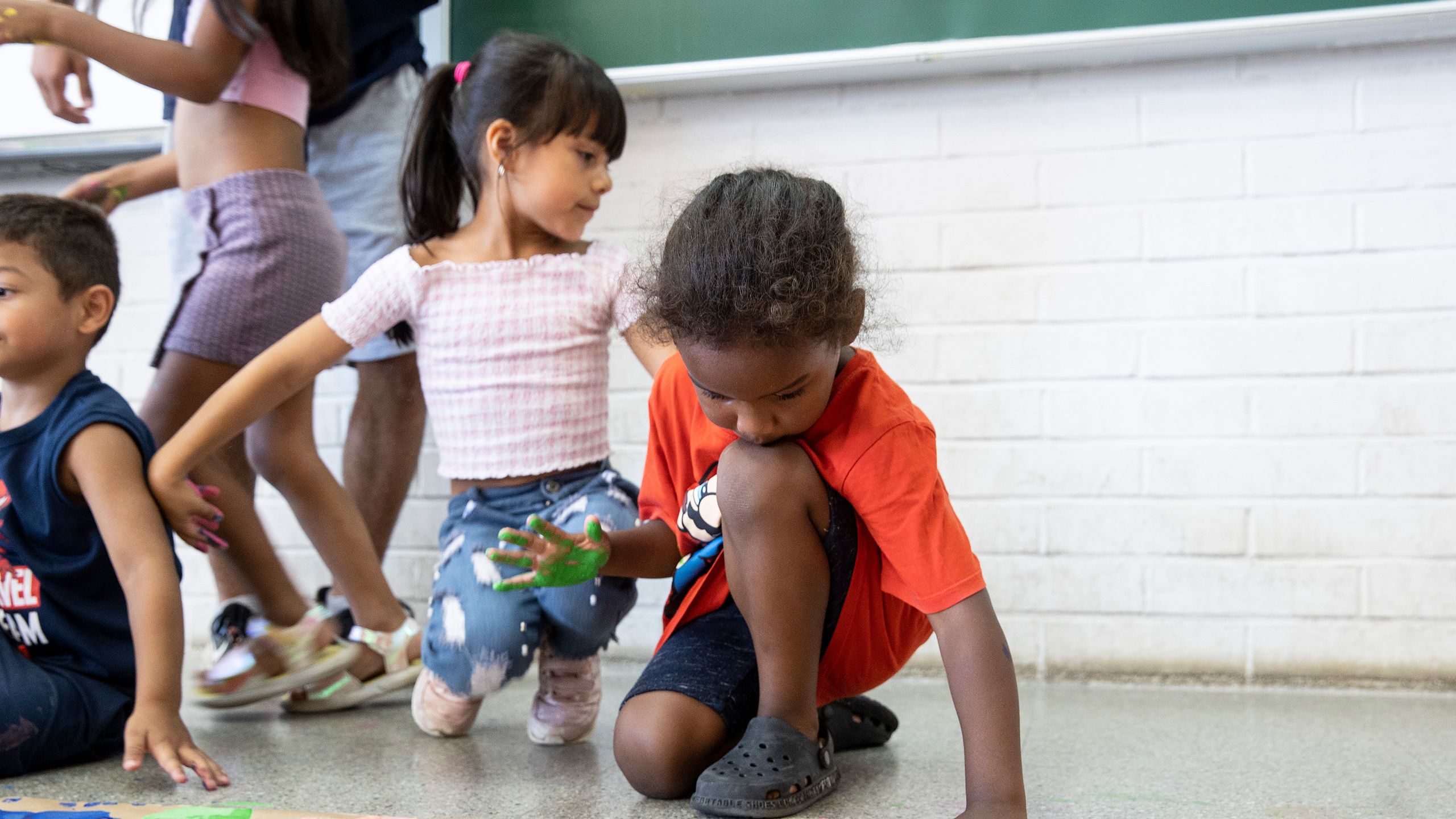

Contributing to the UN Universal Periodic Review of Serbia, the Balkans Migration and Displacement Hub, a programme unit of the Save the Children North-West Balkans, helps put the rights of refugee and migrating children in the spotlight.
Save the Children Europe and the European Parliament Intergroup on Child Rights organises the event Putting Children at the heart of the Pact’s trilogues, co-launching a booklet of redlines.
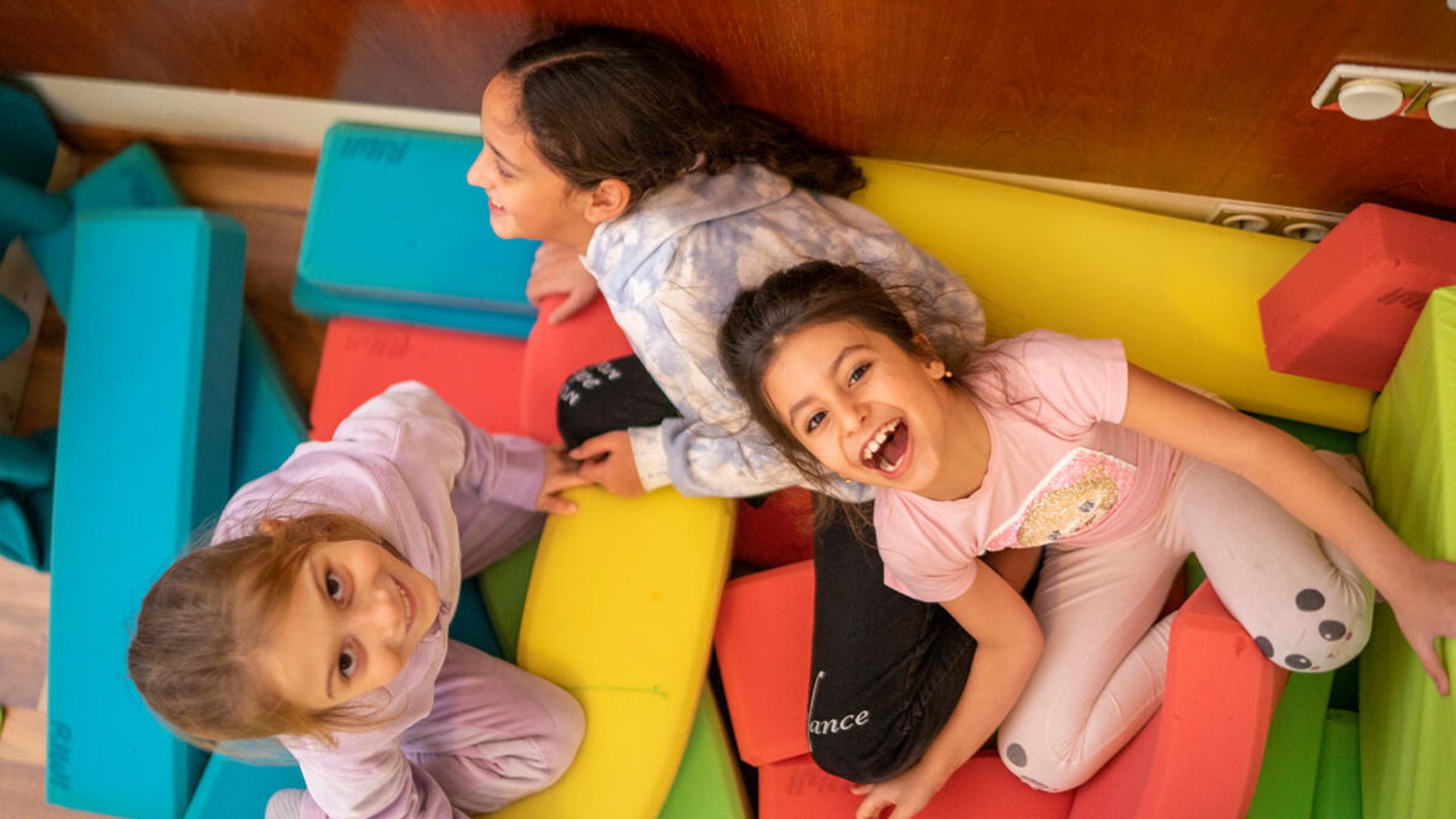

History is made in the European Union – Save the Children brings 13 children from our programmes across Europe (Denmark, Italy, Lithuania, The Netherlands, Romania, Spain and Sweden) together with EU decision-makers at the first ever General Assembly of the EU Children's Participation Platform, co-created and co-chaired with European children and teenagers.
Child-led and peer-supported digital makerlabs are developed by Save the Children Germany in a programme offering a new methodology for schools, youth centres and community libraries. Young peer-to-peer trainers run labs alongside teachers and pedagogical staff, getting recognition, developing valuable skills, and making labs more fun and engaging for participating children.
At the Civil Society Gala awards, Save the Children Romania is awarded the commander rank Merit for the Promotion of Human Rights and Social Commitment from the President of the country for its projects including to keep child abusers out of elections and to support refugee children and families from Ukraine.
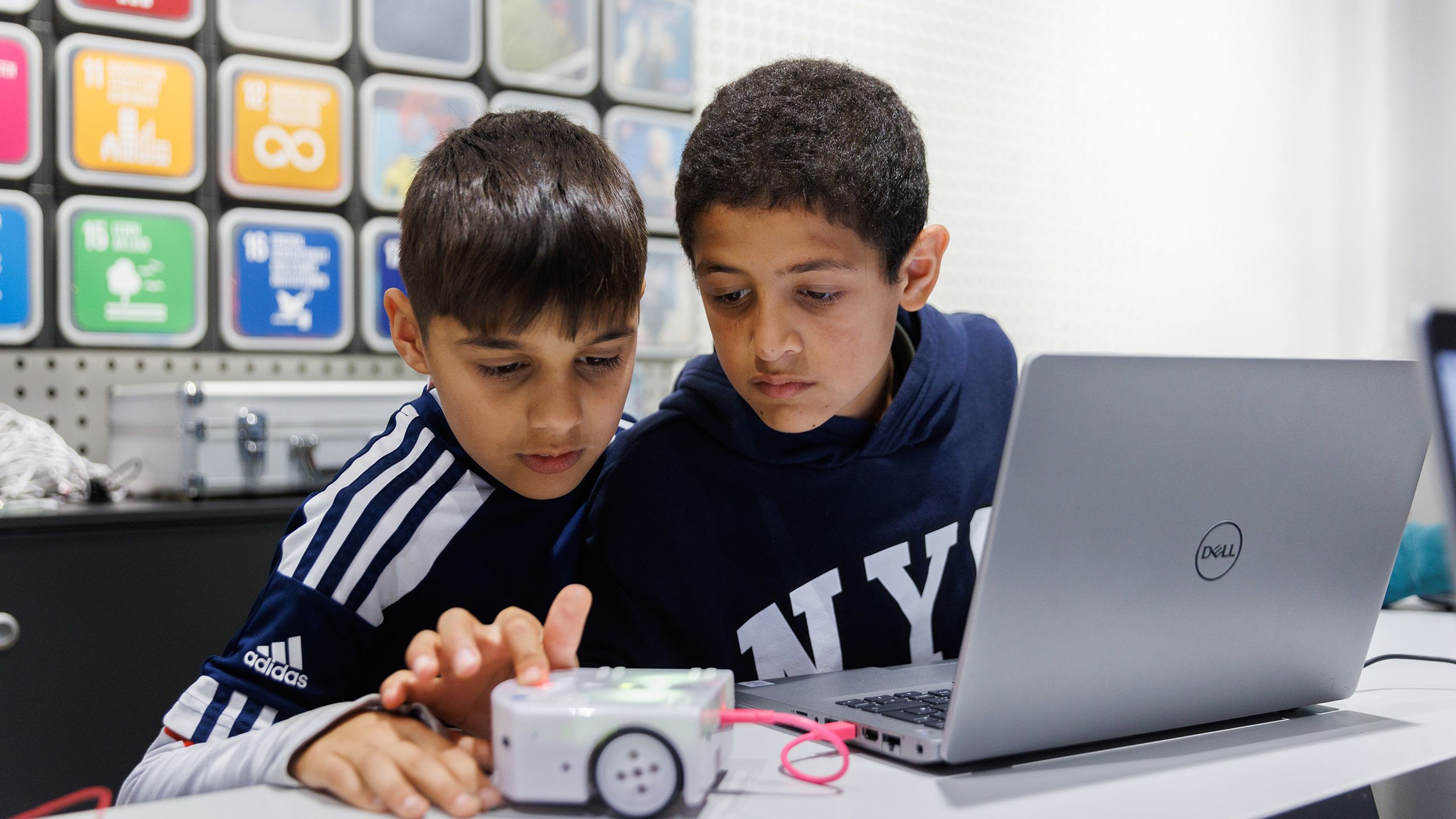

Save the Children, together with the Greek Council for Refugees (GCR), launches the report Without Papers, There is No Life, which revealed how most unaccompanied children seeking safety in Greece have their asylum claims rejected, leaving them without legal papers and vulnerable to abuse and exploitation.
Save the Children Netherlands forms the first international Save the Children consortium in Europe on climate and child participation at municipal, national and European levels. The consortium covers 5 countries and includes 6 Save the Children organizations: SC Albania, SC Europe, SC Lithuania, SC Netherlands, SC Romania and SC Sweden, together with other 4 partners.
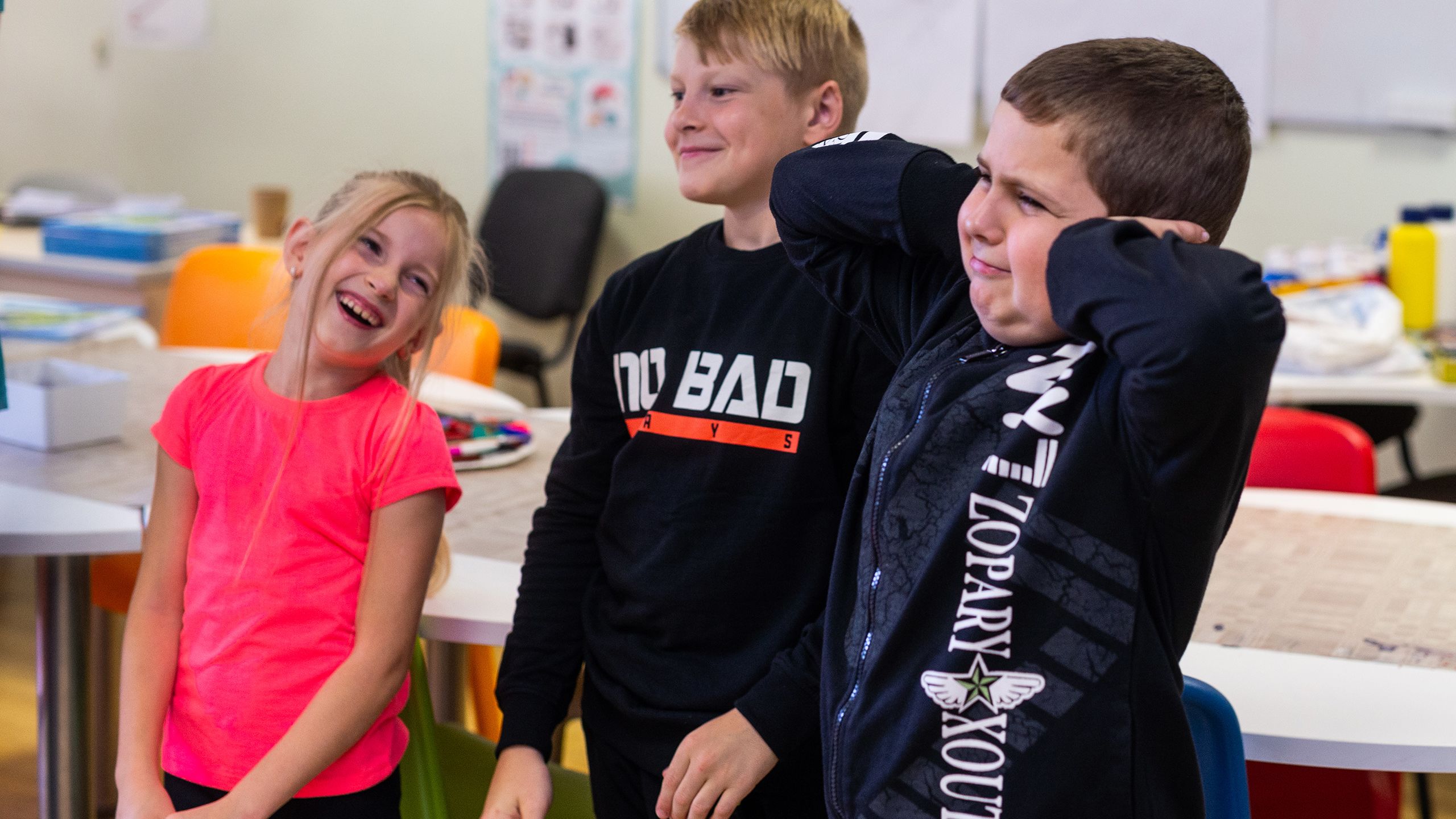

The 20-year-strong online safety hotline (Nettivihje) run by Save the Children Finland (as part of the Finnish Safer Internet Centre consortium), opens to all reports of sexual violence, even when unrelated to online images. Save the Children Finland advocated for this expansion after running a feedback workshop with children, collaborating closely with the National Bureau of Investigation and others.
Save the Children Germany records high demand for its child protection training and advice for schools which provide training on topics such as identifying violence against children, cooperation with child protection agencies and developing child protection policies for schools.
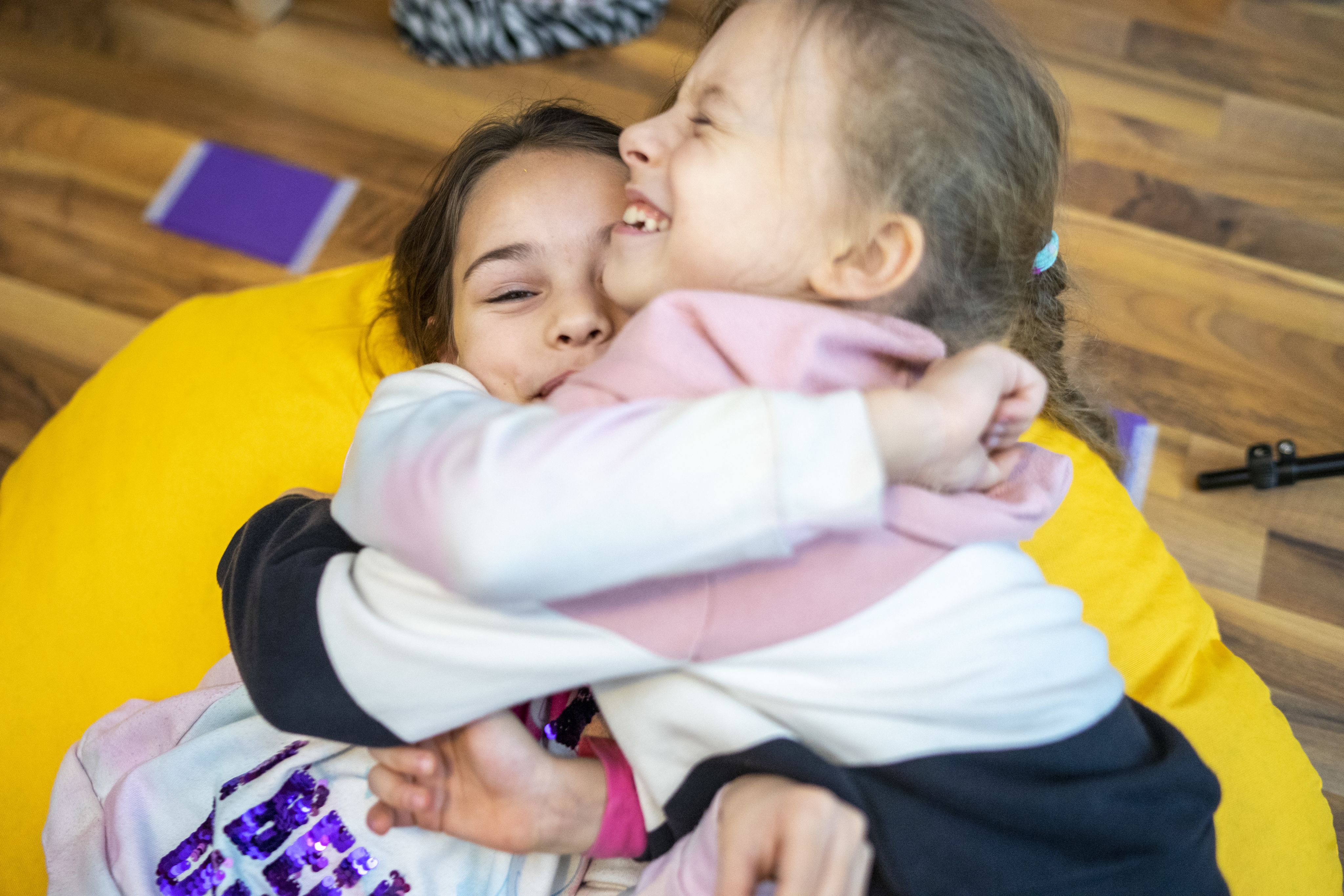

Save the Children Denmark starts preparations to begin working in Greenland.
The project Eco-schools for the Climate and Environment is launched by Save the Children Albania, following a 2019-2021 pilot. It capitalizes on the important role of school communities in catalyzing climate and environmental action, whether through local environmental protections and teacher training or high-level, child-led advocacy.
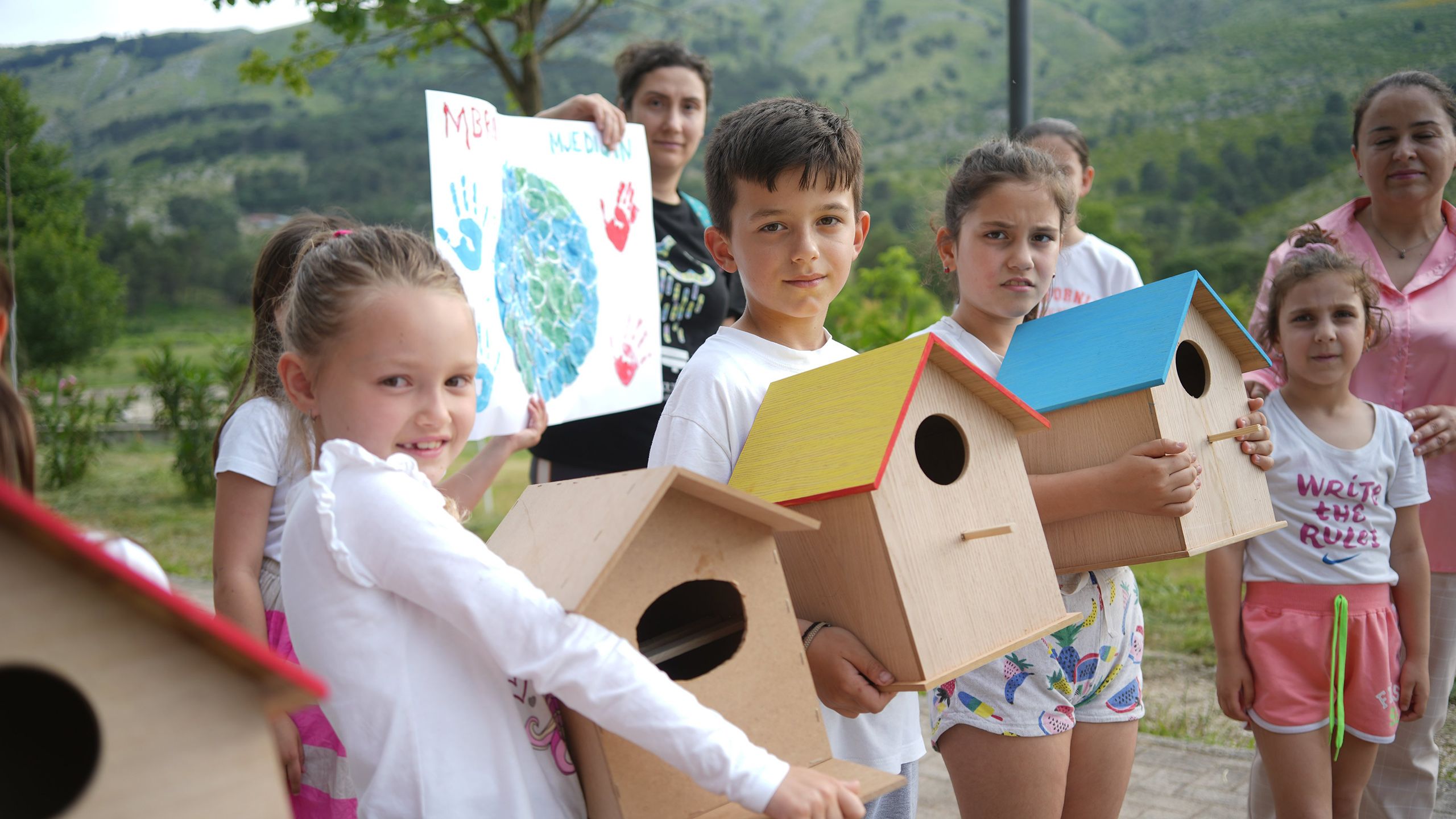

A handover process is completed: Save the Children Germany passes the running of a child-friendly space in an emergency refugee accommodation centre to the city of Frankfurt. The city commits to run and resource it into the future – an important sustainability milestone.
Save the Children Germany joins an expert panel discussion and facilitates several technical workshop sessions at a national conference, hosted by the Federal Ministry of Family Affairs. Having built a reputation as experts in children’s rights and child protection in refugee accommodation centres, the team gains recognition in 2023.
Save the Children Italy launches a long-term growing neighborhoods project in five national locations, with the I live here campaign. The project aims to make sure every child, girl and teenager has the best opportunities to grow in their neighborhoods.
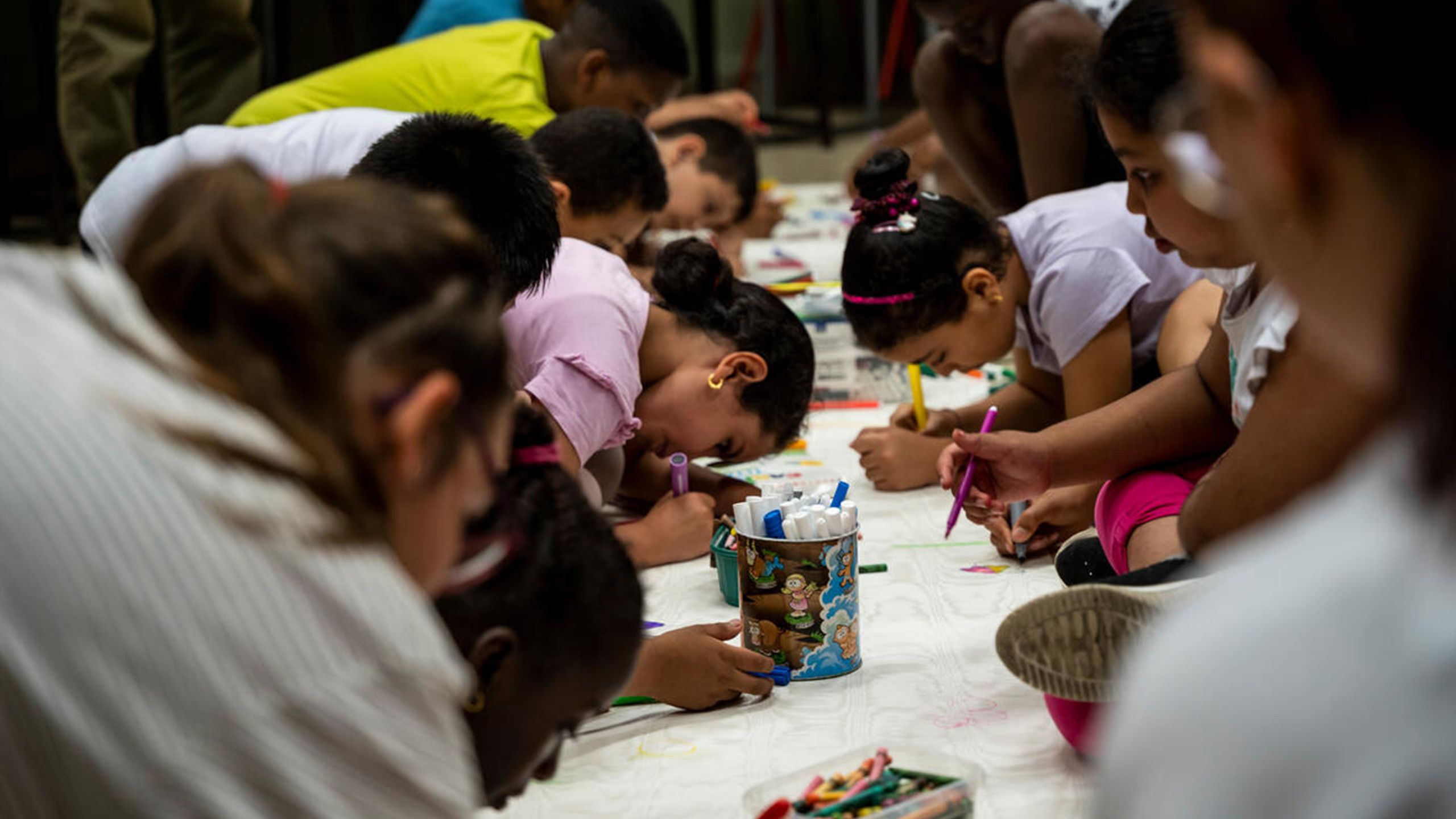

Save the Children Europe cooperates with 4 partner organisations (Eurochild, UNICEF, Child Fund Alliance, SOS Children’s villages) and a consultancy specialised in child participation processes (Child Friendly Government Project) with the aim to gather children’s opinion on how the EU can be a better place for children, ahead of the European Elections in June 2024. Children are invited to share their ideas for a child-friendly European Union through the survey The Europe Kids Want.
Save the Children Romania collaborates with MEP Victor Negrescu to organise a roundtable in the European Parliament: The social consequences of European mobility: children left at home. This followed a national study that revealed the extent of the social, educational, psychological and health difficulties children face growing up without the direct care of one or both parents.
More than 200 Finnish schools (5,500+ students) have learned about digital safety and wellbeing with Huippula, Save the Children Finland’s digital tool to support 10–12-year-olds, their teachers and caregivers.
The 14th edition of Save the Children Italy’s Atlas of Childhoods at Risk focuses on the digital revolution and what it means to grow up in societies pervaded by artificial intelligence.
For children aged 6–17 in institutional care after fleeing Ukraine, Save the Children Poland partners with Kitabna to run storytelling workshops. The sessions run in Save the Children’s safe spaces in the centres, and help children safely express themselves and give voice to their experiences.
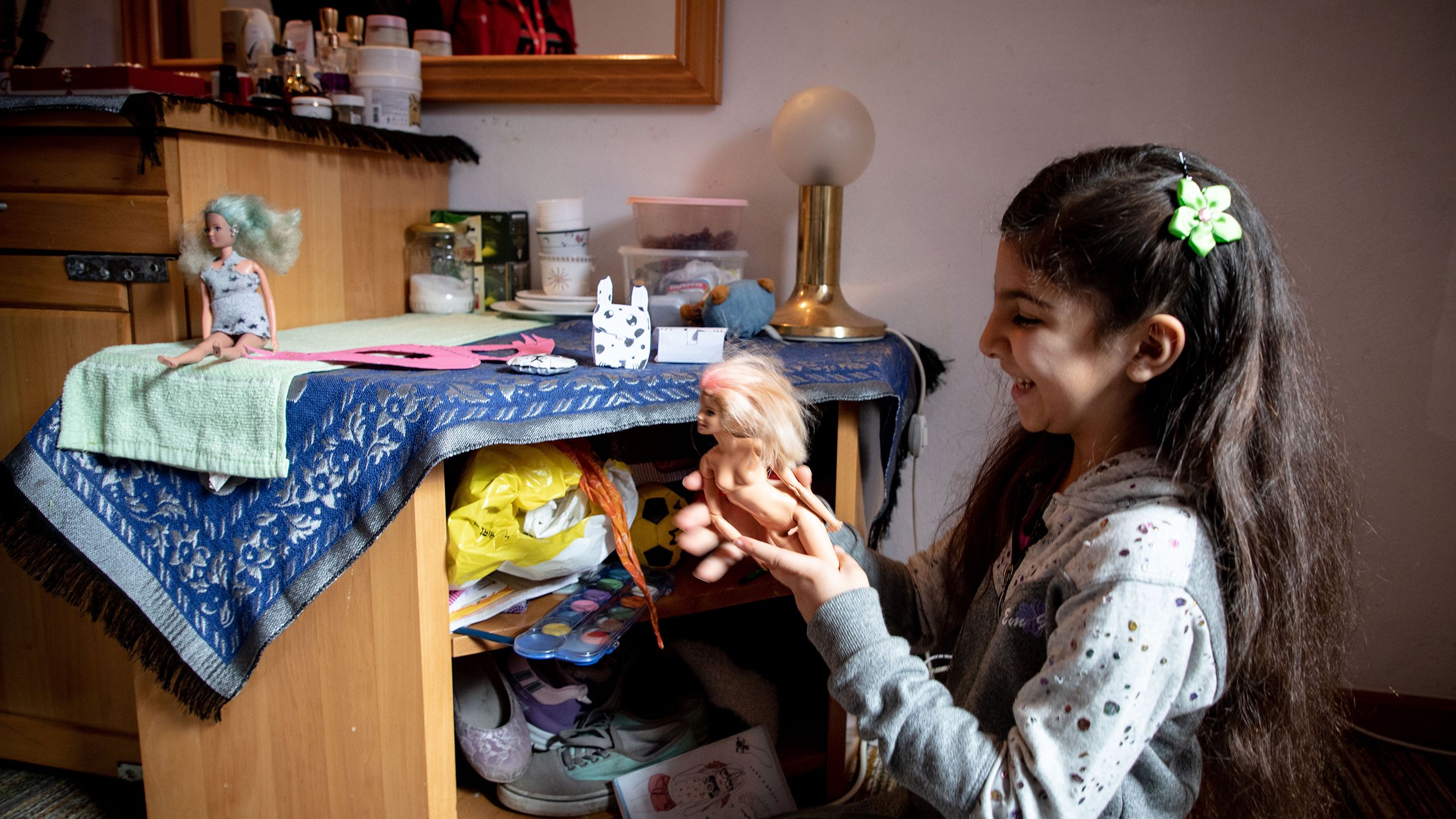

Ahead of a jumbo trilogue on the EU Pact on Asylum and migration, Save the Children Europe staged a demonstration in front of the Council of the EU headquarters. Bicycles with banners circled the venue and digital displays nearby confronting legislators with the dire reality of children who should be skipping ropes, not borders.
Save the Children Germany establishes its 100th child friendly reading space as part of a project that introduces books and reading in a playful way, aiming to reach less privileged children in daycare facilities at elementary schools.
A Save the Children Spain project to fight child poverty culminates across four cities (Madrid, Cadiz, Seville and Melilla). It began in 2021, financed by the Spanish Ministry of Inclusion, Social Security and Migration and by Next Generation EU funds, to pilot an innovative methodology that includes all family members in holistic social action and psychotherapy, boosting employability and promoting educational equity.
Employment support and vocational training sessions run by Save the Children Kosovo and partner organisations reach 100 young people with disabilities.
As part of a Ukraine Emergency Response that started in 2022, Save the Children Germany completes roll-out of four successful projects promoting child rights and protection in emergency accommodation centres as well as increasing refugee children’s access to mental health and psychosocial support (MHPSS) services.
During 2023, Save the Children Lithuania launches several programmes for families on the move and host communities: Building Brains that supports early learning and responsive care for children from birth to 3 years old and TeamUp and Healing and Education through the Arts (HEART) that address psychosocial needs of children and are designated to increase their resilience. A mechanisms of financial support for child protection, the Cash and Voucher Assistance (CVA), is developed.
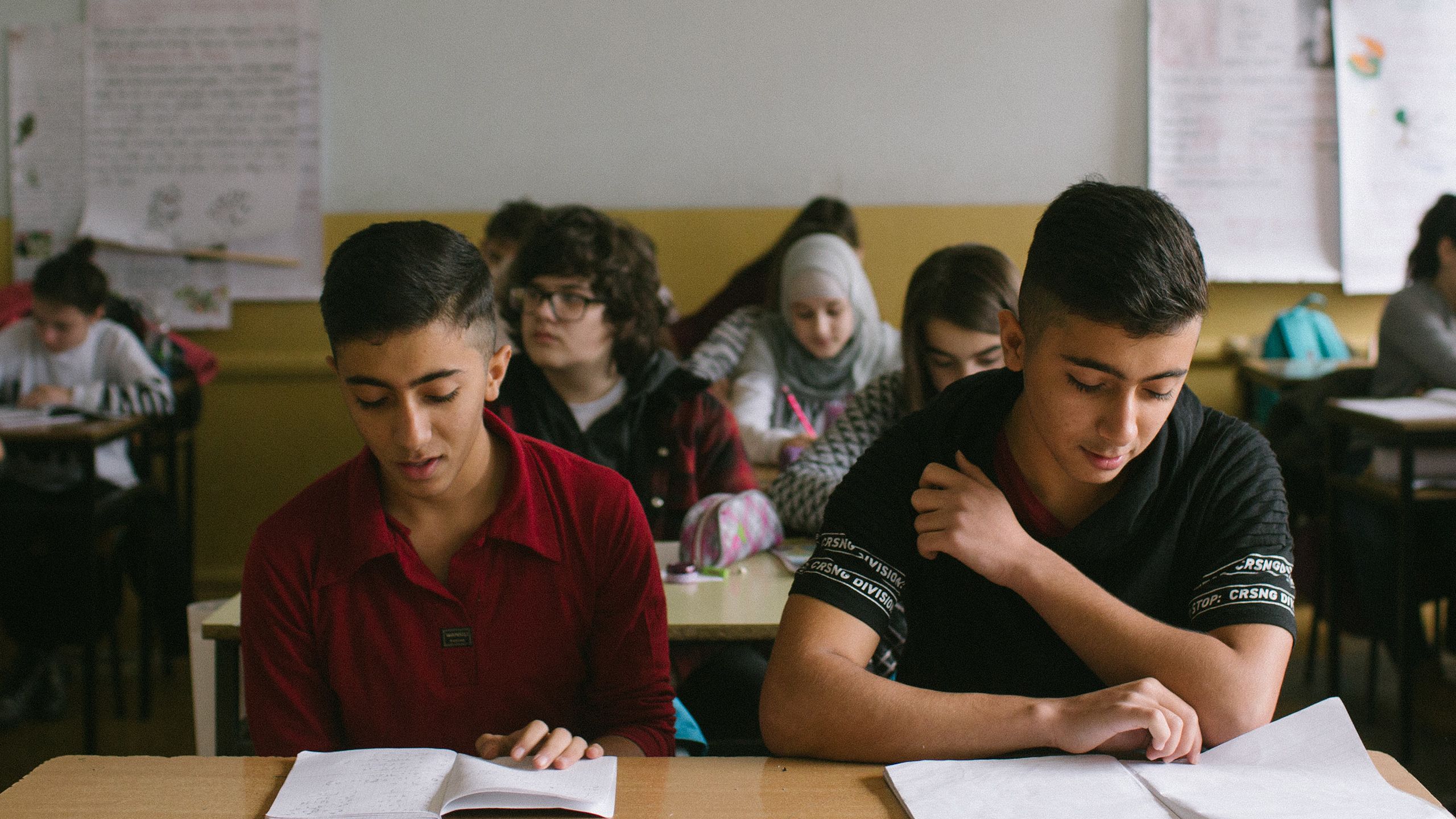
What we work to change
As Save the Children works across Europe to protect and promote the rights of children, especially those in vulnerable situations, we focus our efforts in five main thematic areas that affect children’s lives.





01.
Child poverty
Despite Europe’s relative wealth, many children and families here experience poverty and social exclusion. We support families to ensure every child gets the education and support they need to thrive. This year, a significant focus has been to call for the full and ambitious implementation of the European Child Guarantee.
02.
Children on the move
Children who endure severe hardship to reach Europe often face discrimination when they arrive. We provide life-saving aid, information, mediation and more for families at borders, in camps and in our centres to ensure that children are protected, healthy and have access to education. We advocate for their rights, this year focusing our efforts on a child centered EU Pact on Asylum and Migration.
03.
Child protection
– online and off
We work to protect children from physical and emotional harm – including in their digital lives, where protection systems are falling short. This year we pushed for the adoption of an effective EU child sexual abuse regulation (EU CSA regulation) while our projects help children avoid online risks – and get support when they experience them.
04.
Child participation
Children have the right to be involved in decisions that affect them. Our aim is to empower children to take the lead, whether that’s co-designing our work or influencing high-level decision-makers. This year saw the launch of the EU’s first ever Children’s Participation Platform, of which Save the Children is proudly part of.
05.
Climate impact
The climate threat is not looming – it’s already attacking children’s minds, bodies and rights through heatwaves, wildfires, floods, pollution and the spread of disease. In 2023, we have taken up the challenge to work on the impact of climate on children in Europe through our advocacy and programmatic actions.
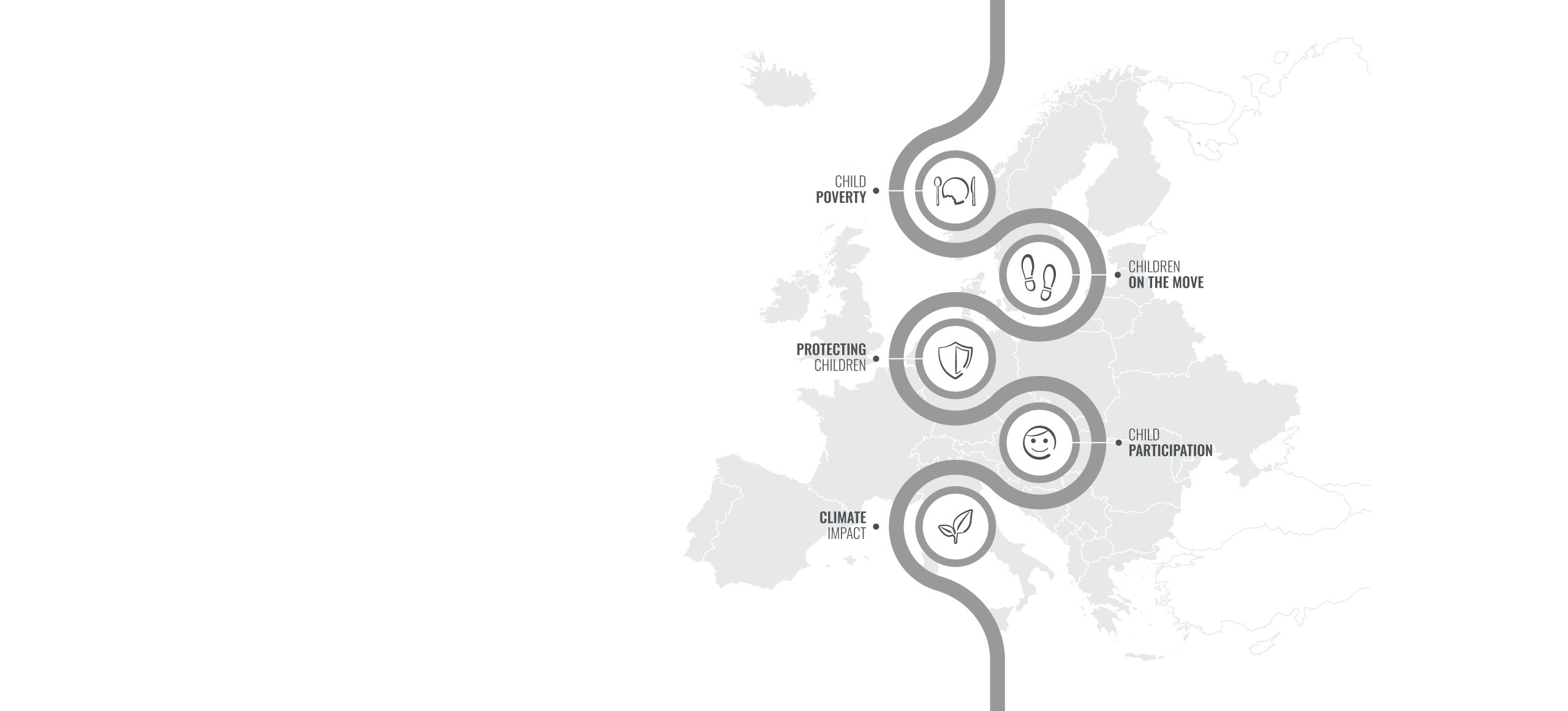
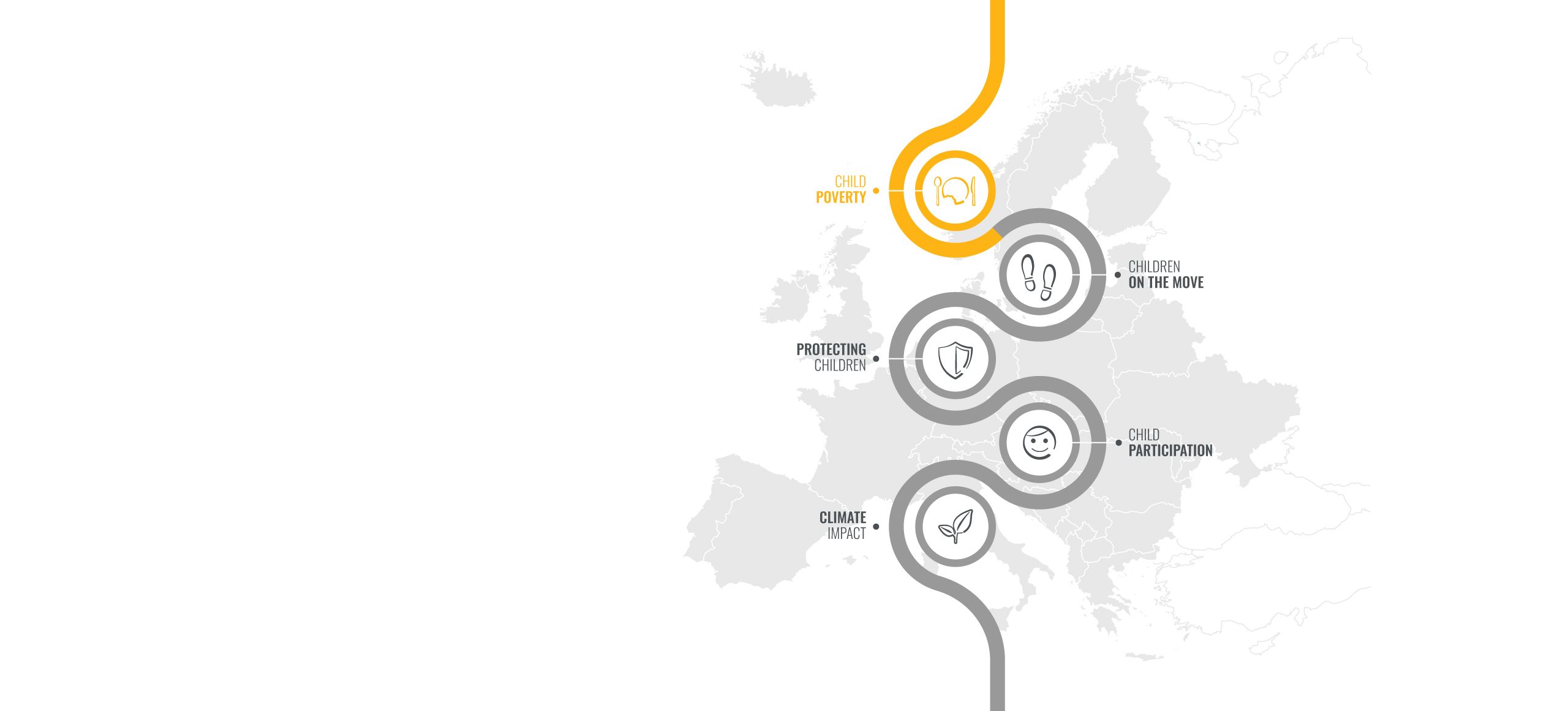
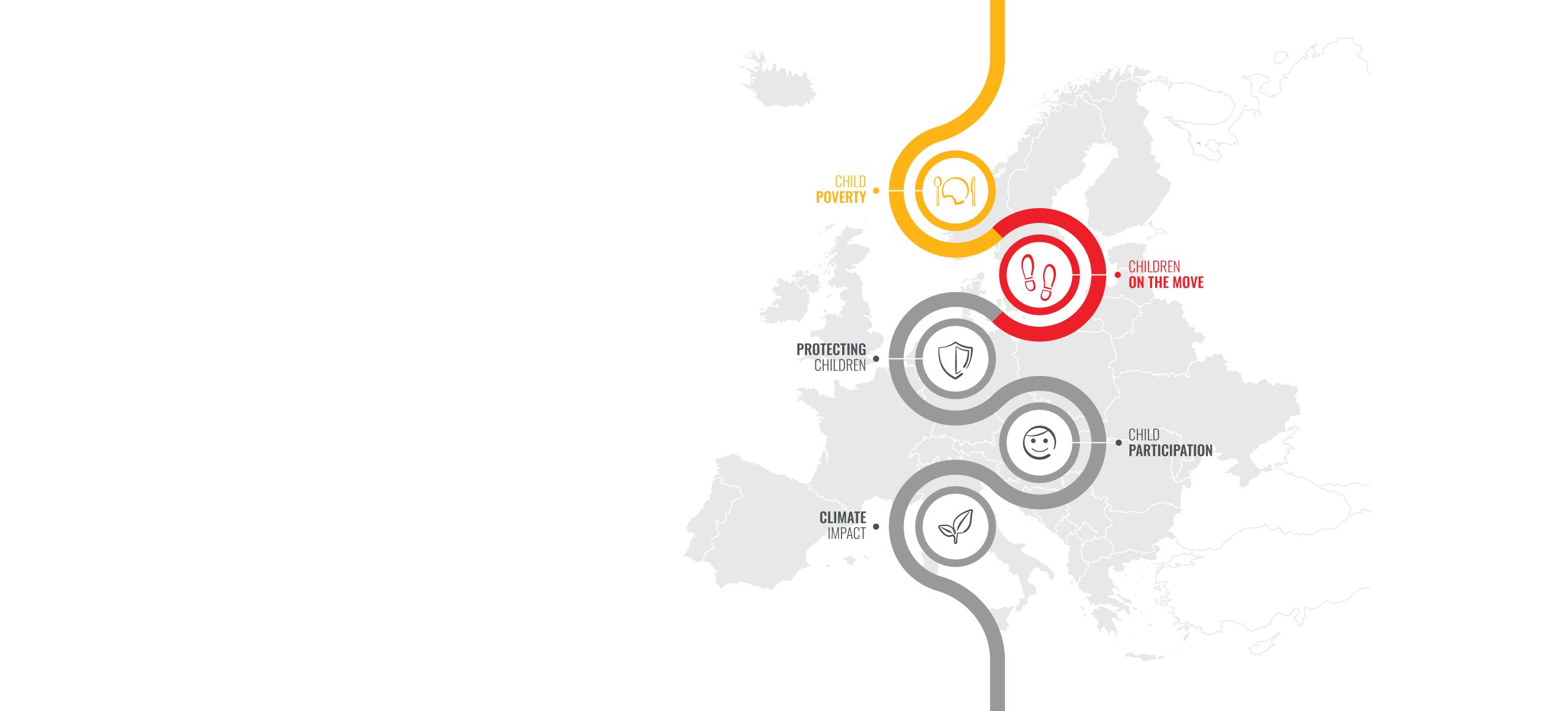
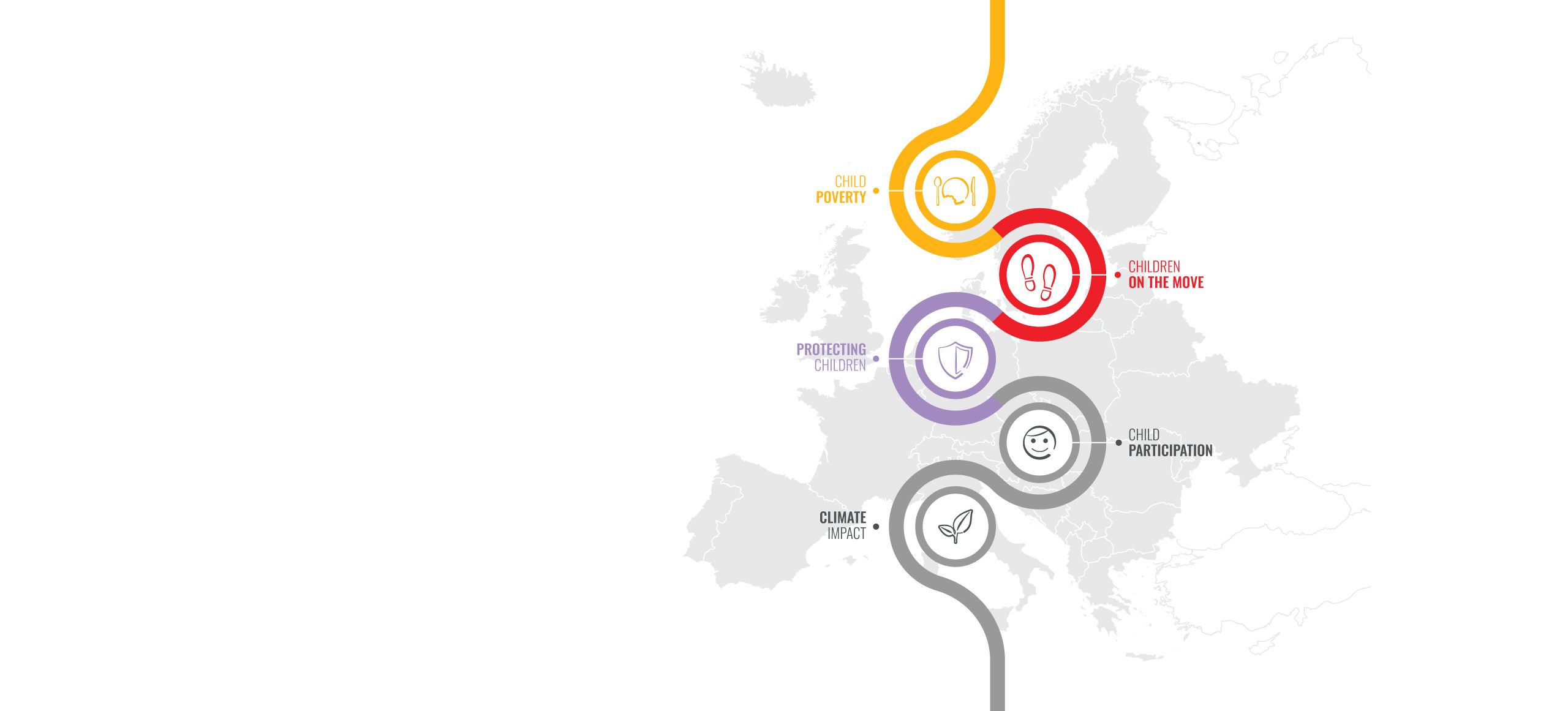
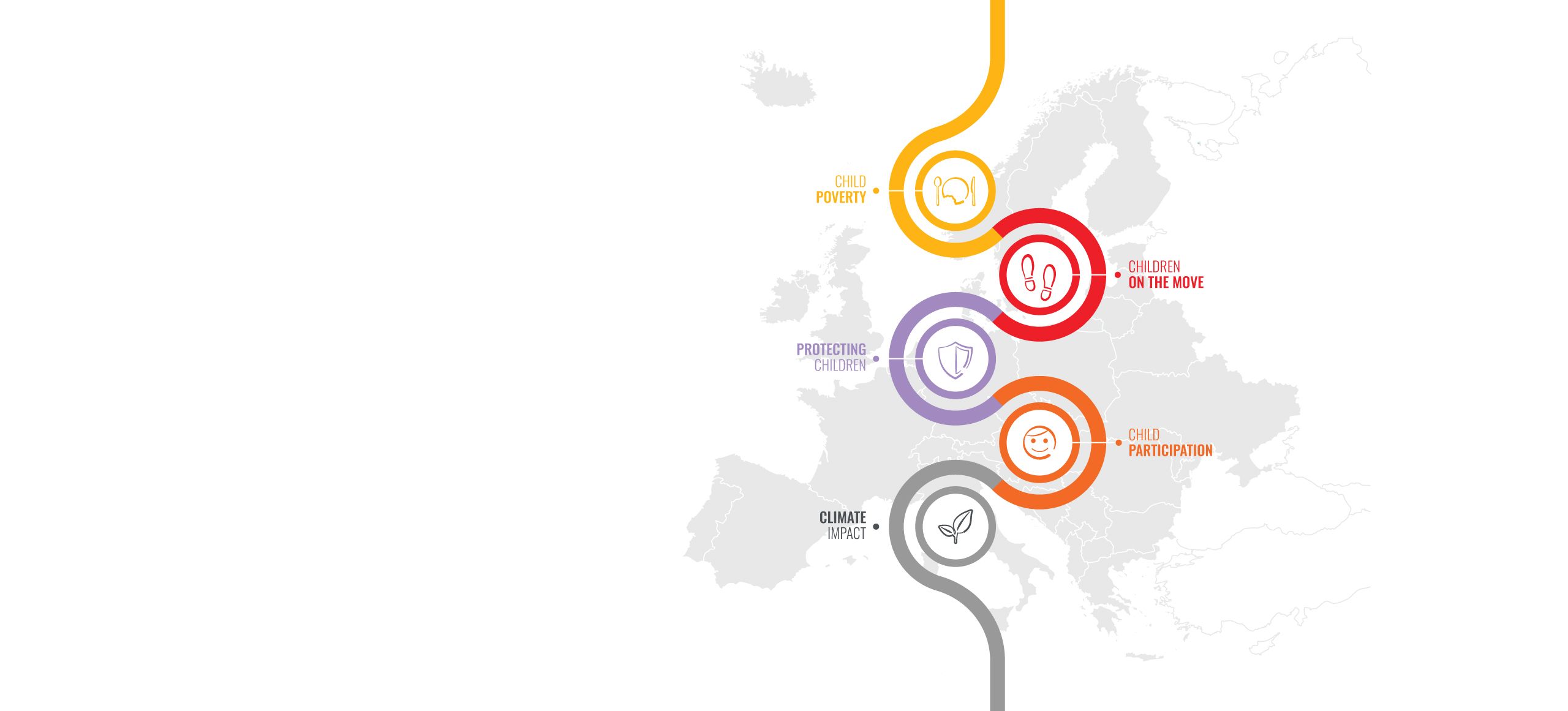
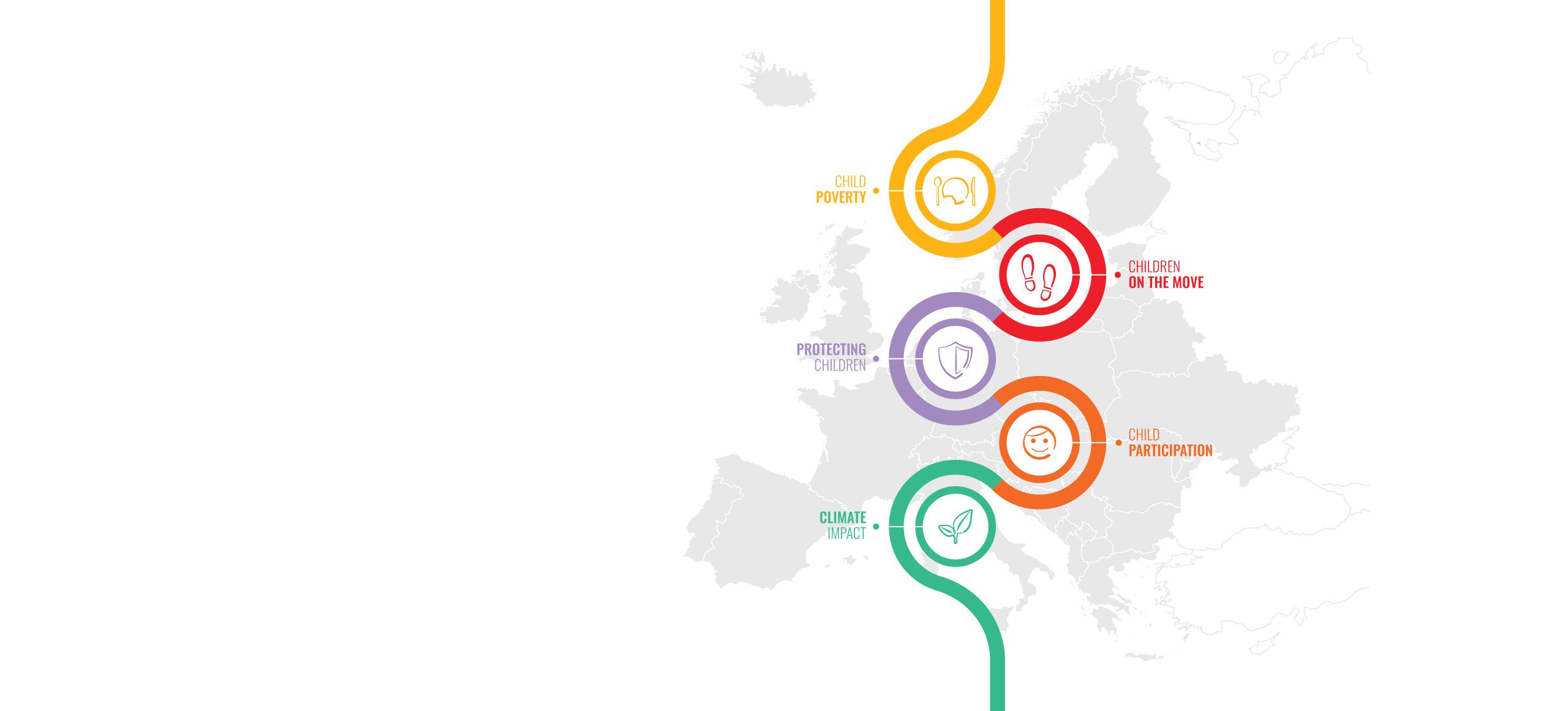
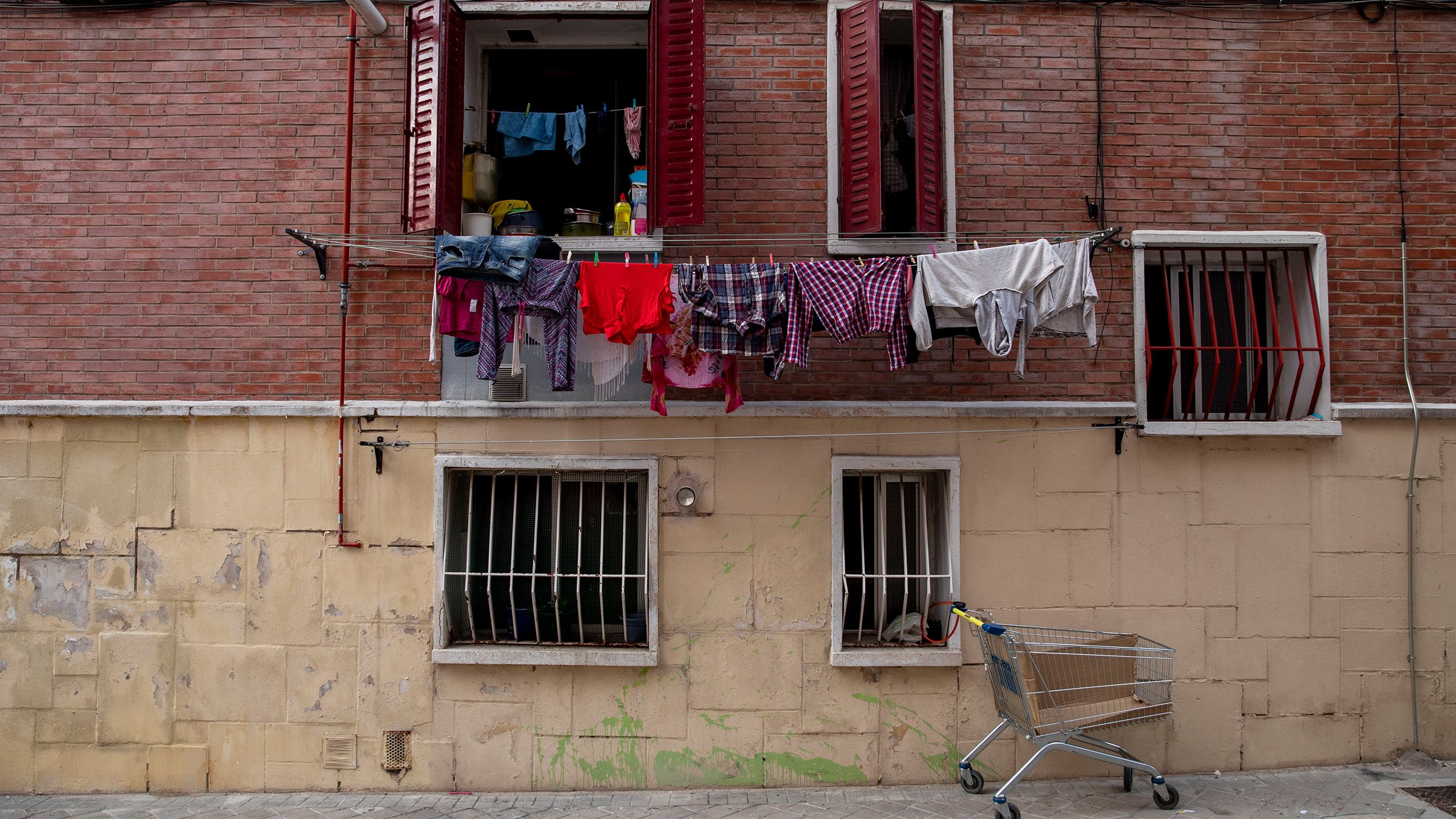
Child poverty
Children face poverty in every European country – it’s a widespread and current crisis.
The COVID-19 pandemic still affects children’s wellbeing, their education, social interactions, and mental health. The conflict in Ukraine and consequent cost-of-living crisis have plunged families that were financially stable into poverty. Millions of already vulnerable children have sunk into deeper poverty. And the climate crisis is a tangible emergency also jeopardising children’s rights and impeding their access to services.
Save the Children advocates tirelessly to put child poverty at the top of the European and national political agendas to make sure children aren’t left behind by the education and social systems that should give them a fair start in life. By bringing together expertise in advocacy, funding and programming, we provide both hands-on support to children and families in vulnerable situations, and momentum for change.
We’re in constant contact with national and EU political authorities and stakeholder networks, pushing for new, robust measures to protect children’s rights. Thanks in part to our work, the previous years saw the adoption of the European Child Guarantee, a significant framework to make sure children experiencing poverty can access the social services they need. In 2023, we pushed to make sure that the historic framework is successfully implemented and makes a real difference for children.
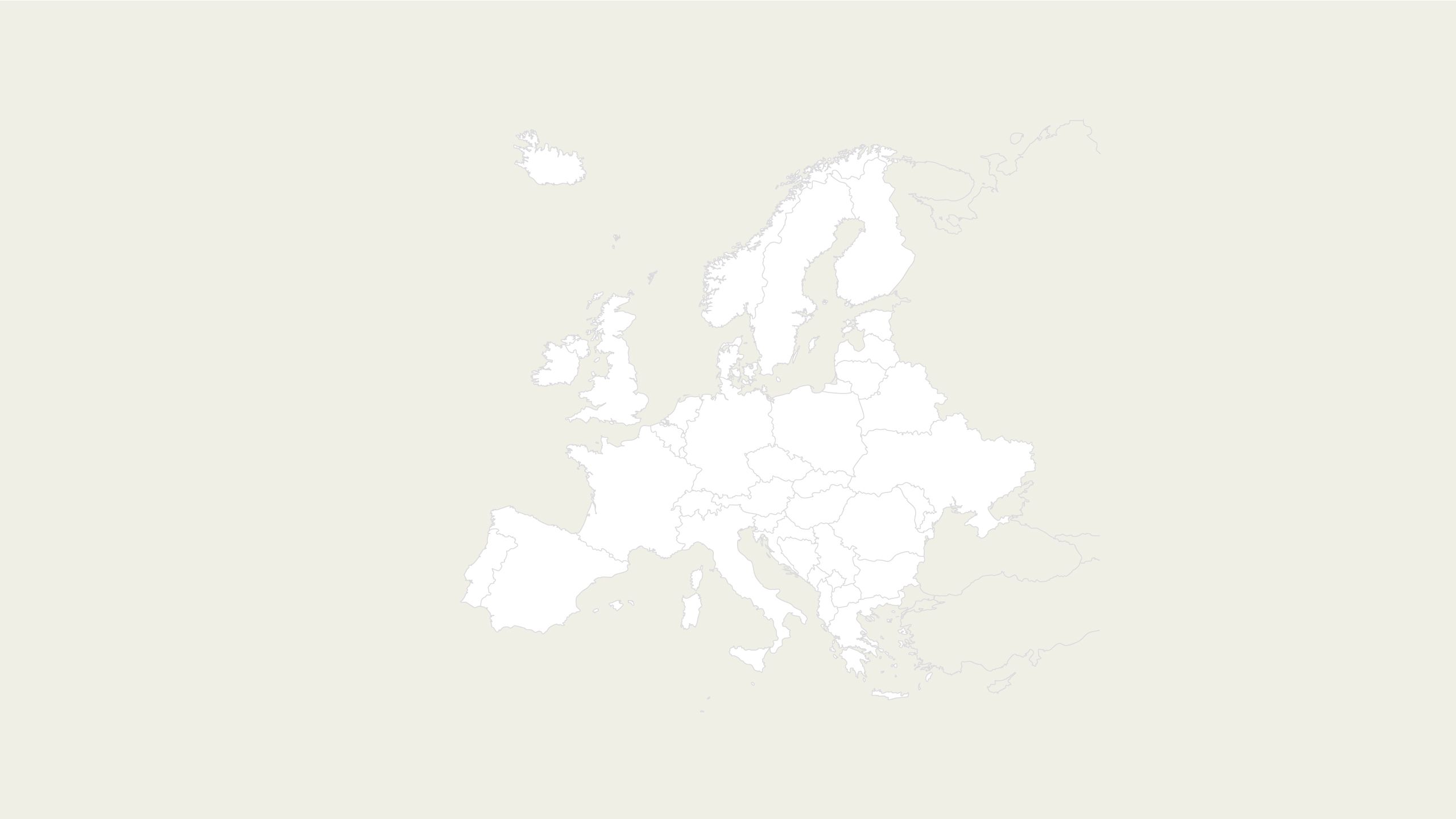
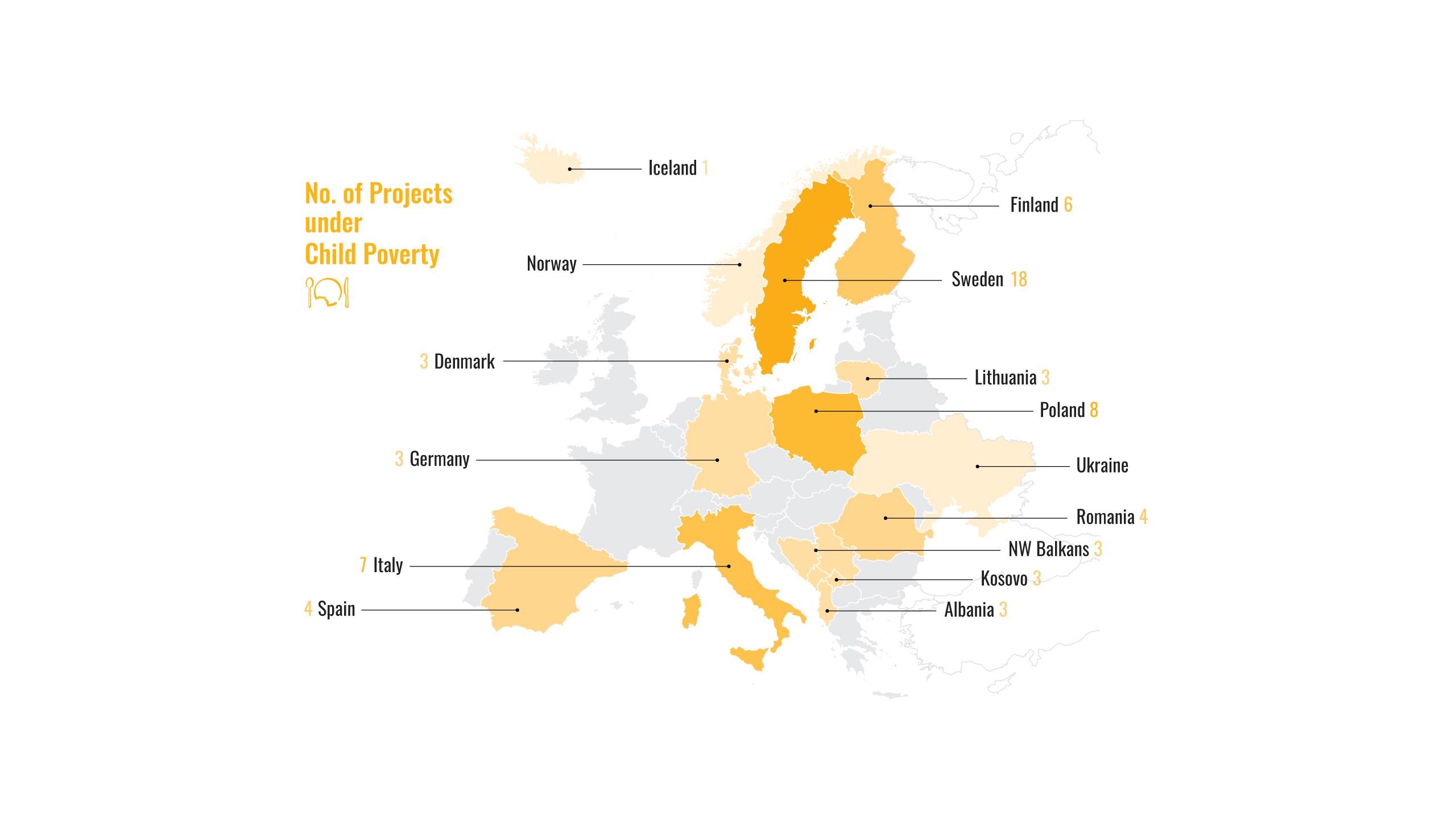
Children on the move
Millions of children around the world have to move away from their homes. Children on the move is a term that brings together different groups of children with different stories, but with similar protection needs.
They might be fleeing war or violence, or find their home so affected by climate change, natural disasters or poverty that they can no longer survive there. They might move voluntarily, in search of a better life, education or work. Or it might not be their choice – for example, many are trafficked or live on the streets. Children on the move may be with family or other caregivers, or they may be alone.
Whatever the reason for their journeys, while they’re moving, they’re exposed to higher risk. They might not be cared for. They’re vulnerable to economic or sexual exploitation, abuse, neglect or violence.
Save the Children’s goal is that all children on the move get the care they need, wherever they are. They should be able to go to school, be with their families where possible, and be safely included in their communities.
In Europe, we focus mostly on the protection of children who are migrating or seeking asylum, or have refugee status. We focus on the need to create national and European law and policies that guarantee their inclusion and access to protection.

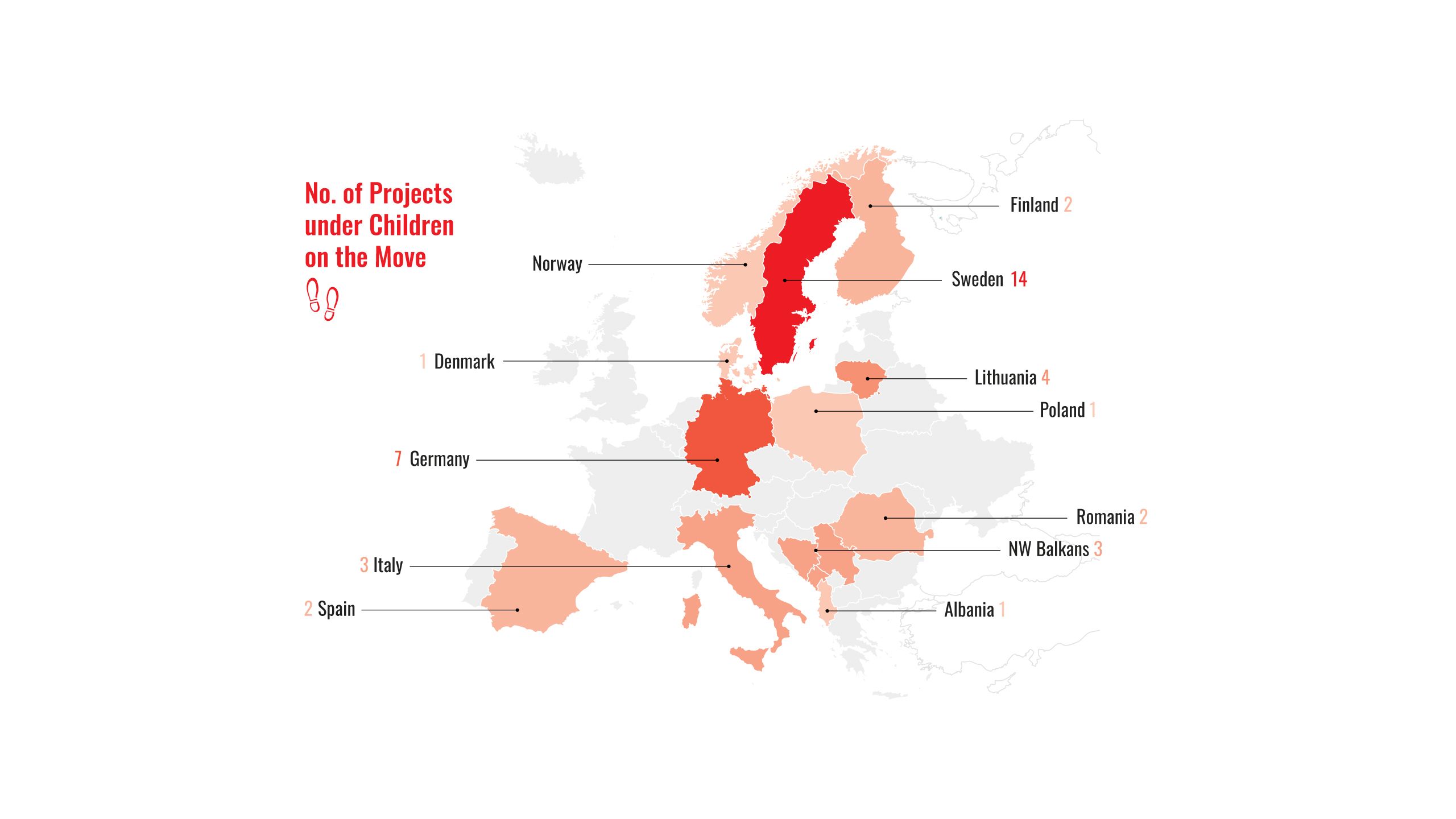
CHILD PROTECTION - online and off
Our child protection teams around Europe work to keep children safe from violence – whether that takes the form of physical or emotional abuse, neglect or deliberate deprivation, sexual abuse or exploitation such as forced labour or modern slavery.
In 2023, Save the Children in Europe began coordinating their advocacy efforts on child safety and child rights online. Save the Children Europe gathered interested members together and established the advocacy working group on child rights online.
The working group started meetings and, as a first focus area, strengthened and harmonised members’ advocacy efforts around The European Commission proposal for a regulation laying down rules to prevent and combat child sexual abuse (EU CSA regulation).

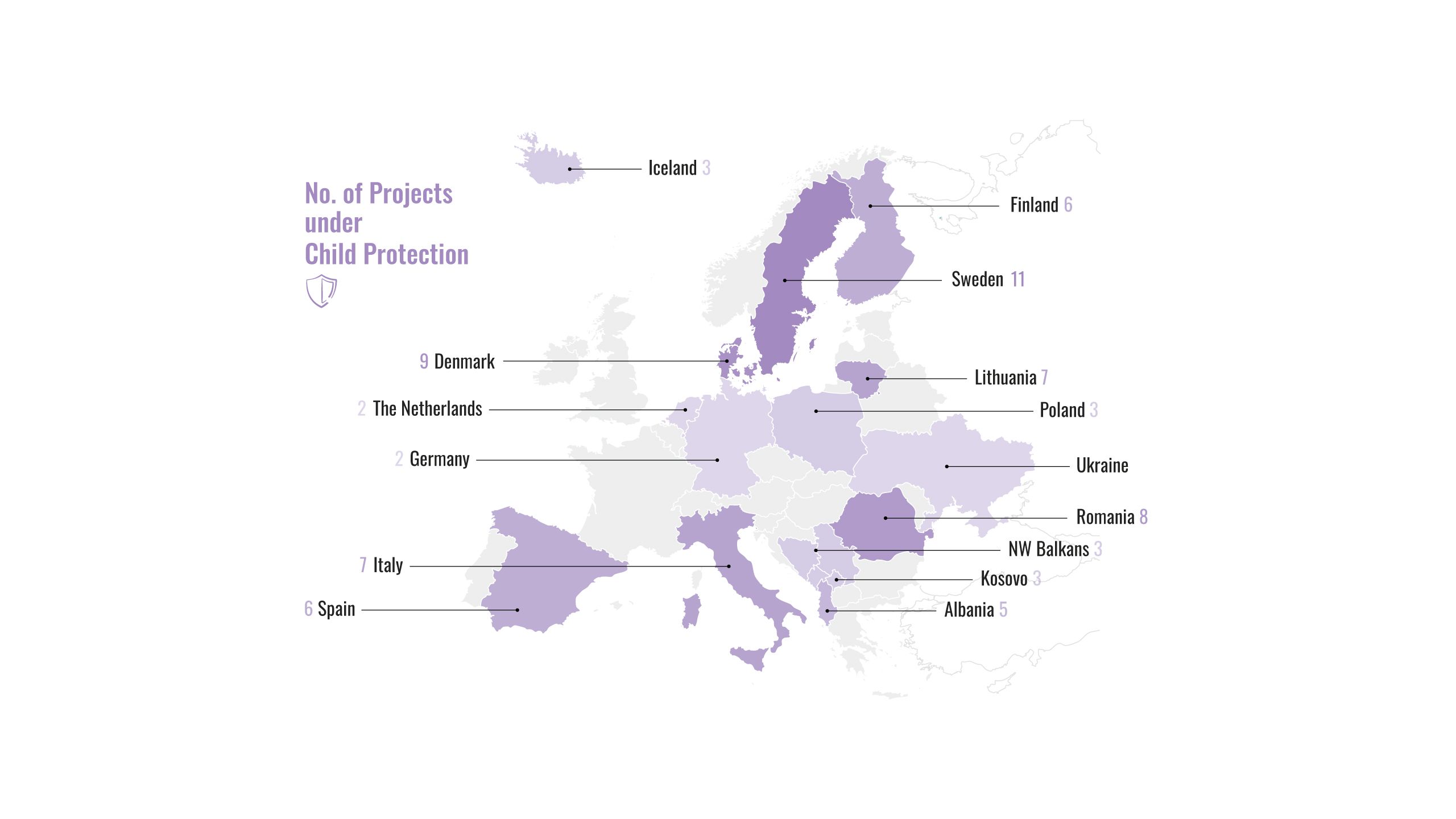
ChilD participation
Across our work in Europe, children are informed and empowered to have a say in decisions that affect them. The commitment to involve children is at the center of everything we do.
This year we joined as the EU’s first ever Children’s Participation Platform was launched to help children realise their right to participate in decision-making. Through it, children can share, learn and join consultations, meetings and more, in person or online.
The Platform has already brought together 50 Child Participation Mechanisms from 21 EU Member States. Save the Children brings the voices of children from 7 EU Member States (Italy, Spain, Lithuania, Romania, Sweden, Netherlands and Denmark). A delegation of 13 children from our programmes, who are also part of the platform's Children's Panel, meet every month to co-create the platform’s upcoming topics and events.
In June, history was made as 13 children from Save the Children programmes in Europe participated in the first EU Children’s Participation Platform General Assembly in Brussels. Children opened and closed the General Assembly together with EU decision makers and they co-led its overall design and running.
Also in 2023, in the run-up to 2024 European Parliament elections, Save the Children Europe teamed with ChildFund Alliance, Eurochild, SOS Children's Villages and UNICEF to launch the Europe Kids Want survey that aims to make sure MEPs and future Commissioners hear children’s voices on how to make the EU a better place for them.

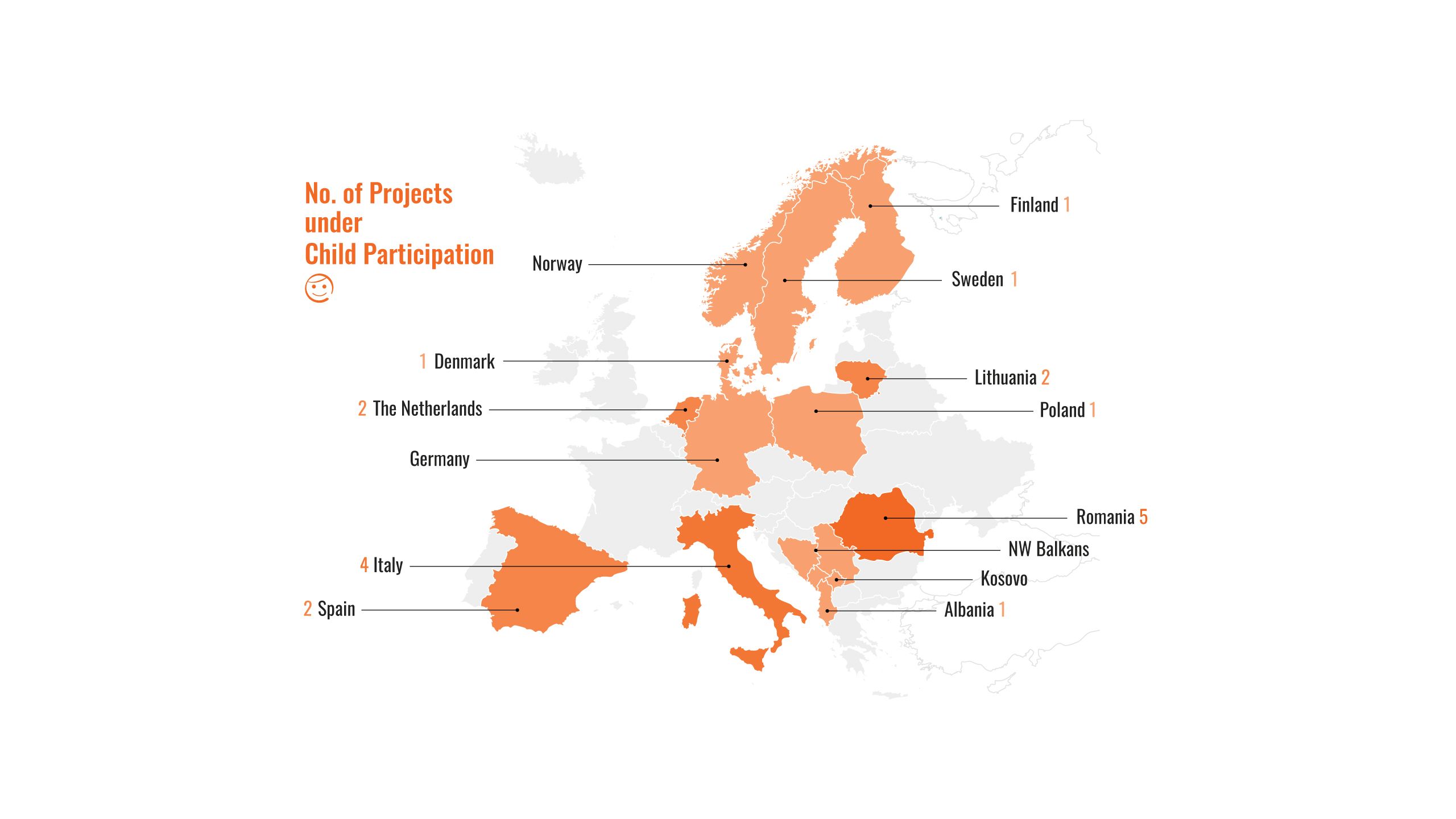
Climate
Climate action is a priority for Save the Children and for the EU. Rightfully considered a global leader on the issue, the EU shows exceptional commitment through its Green Deal and other actions and papers.
In line with 2022-2024 strategy, Save the Children Europe has this year seconded expertise and built connections with potential climate and environmental partner organisations and EU institutions. It also took part in the European Climate Stocktake, convening with a range of civil society stakeholders to reflect on progress towards the goals of the Paris Agreement.
Undertaking deep, discursive work to formulate climate advocacy calls, Save the Children Europe co-coordinated a collaborative proposal development process across members and offices and applied for EU funding to advance child participation at all levels on climate policies.

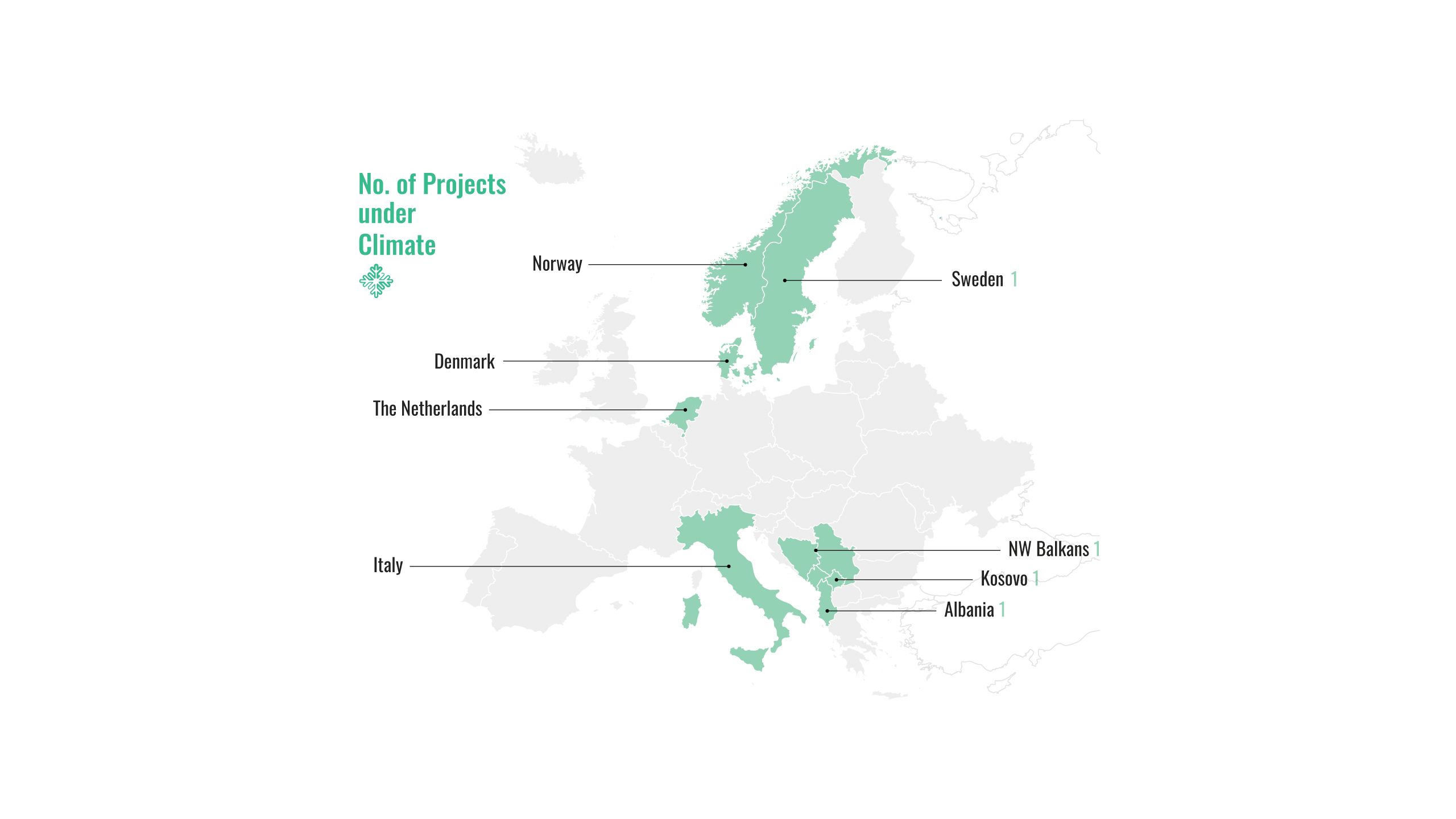
Conclusions
2023 was a year that saw children in Europe face severe challenges. The persistent numbers of children growing up in poverty and social exclusion across the continent, the dire conditions that children on the move experience while trying to reach Europe and the aftermath upon their arrival, the climate change linked to poorer standards of healthy lifestyles, as well as the ongoing war in Ukraine and the severe impact on children in the country and abroad were only a few to name. Policy wise, the failure of EU Member States to agree on a child focused EU Pact on Migration and Asylum will lead to further hardships for children on the move, both in EU member countries and in European countries at the external border of the EU.
On the opposite side however, the successful implementation of the Child Guarantee, the EU's commitment to address climate change and protect the environment as well as the EU's vision to enlarge to Western Balkans, Ukraine, Moldova and Georgia and support these countries with advancing their democratic functions provide significant opportunities for children across the continent to live better lives in more social just communities.
Throughout the year, Save the Children advocated for the protection of children's rights by launching reports, organising high level events but also demonstrations and awareness raising campaigns. We are proud that as part of our advocacy, in 2023, we strengthened the participation of children in EU and national decision making procedures through the first General Assembly of the Children's Participation Platform and through several consultations on children's wishes from EU decision makers and more concretely from the upcoming communication on integrated child protection systems.
While advocating for children's rights, Save the Children practically supported children in Europe's borders, we provided the necessary support to children and their families to be better integrated in their communities through the provision of psychosocial, educational, legal and in kind support, we helped children to be better protected online and offline and to get adequate support when needed through the operation of hotlines, helplines and other child protection programmes.
Finally, to complete the evidence we gather from our programmes on the ground, we ran surveys, focus groups and consultations that we use to influence EU and national policy making.
2024 will be a year that will influence decisions for the years ahead, as EU citizens will head to polls in June to vote for the 2024-2029 European Parliament. While Save the Children will continue supporting children and families across the continent, we will strengthen even further our advocacy efforts in Brussels and in the EU Member States to make sure that the 2024-2029 Members of the European Parliament and College of European Commissioners place children's interests at the heart of EU decision-making procedures.
